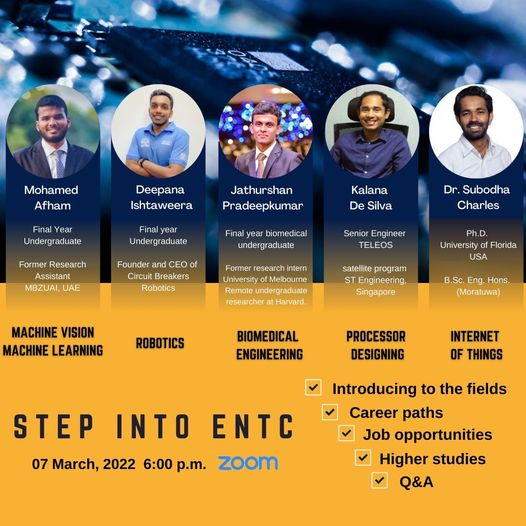ENTC Career Fair
The Department of Electronic and Telecommunication Engineering (ENTC) at the University of Moratuwa hosted a successful career fair for its graduating class on March 7, 2023. The event attracted numerous organizations that specialize in electronics, electronic design automation, telecommunication, machine learning, data science, and software development, among other related fields.
The ENTC department is renowned for its exceptional academic programs, which enable students to reach their fullest potential. This is achieved through the contributions of high-caliber academic staff, talented students, carefully designed curricula, state-of-the-art technologies and research, and a well-received student experience. The department offers two highly sought-after specializations, B.Sc. Honors in Electronic and Telecommunication Engineering and B.Sc. Honors in Biomedical Engineering.
The ENTC curricula are carefully designed, current, and industry-relevant, and provide students with the skills to reach the frontiers of technology. The department has identified the thematic areas of communications, reconfigurable and embedded systems, robotics and automation, computer vision and pattern recognition, and biomedical technologies as areas of advancement. The forward-looking and diverse academic staff, with higher degrees from well-known universities around the world, facilitate this endeavor.
To foster research, the department offers M.Sc., M.Phil., and Ph.D. degrees. The taught M.Sc. programs in Telecommunication and Electronics and Automation attract students from industry. These education programs prepare students for challenging careers in industry and academia in Sri Lanka and elsewhere.
The graduates of the department are exceptionally talented. Only the top performers out of the 250,000 students who sit for the country-wide advanced level examination are admitted to the B.Sc. Eng. Hons degrees at the University of Moratuwa. Out of this already selected group, a student must excel in the semester 1 examination to be able to follow the programs at ENTC, which admits only 116 students. This places the department’s graduates within the top 0.01% of their age cohort.
Students at ENTC experience a technologically advanced, supportive, and friendly environment. Laboratories equipped with modern instruments and industry-standard software make students ready for professional work. The five-storied building houses these laboratories and provides space for studying, engaging in projects, and recreation. Students organize exhibitions, industry forums, and talent shows inculcating harmony and leadership. The students foster a sense of social responsibility, manifested through activities such as the E-care community service program, one of many activities of the E-Club, the student organization of the department. Students greatly benefit from this fruitful life experience the ENTC family offers.
The rich academic culture, talented students, research, facilities, supportive environment, and qualified faculty enable the Department of Electronic and Telecommunication Engineering to produce multi-faceted graduates who excel in industry and research. With such a comprehensive and inclusive approach, the department continues to provide students with the necessary skills to succeed in their chosen fields.
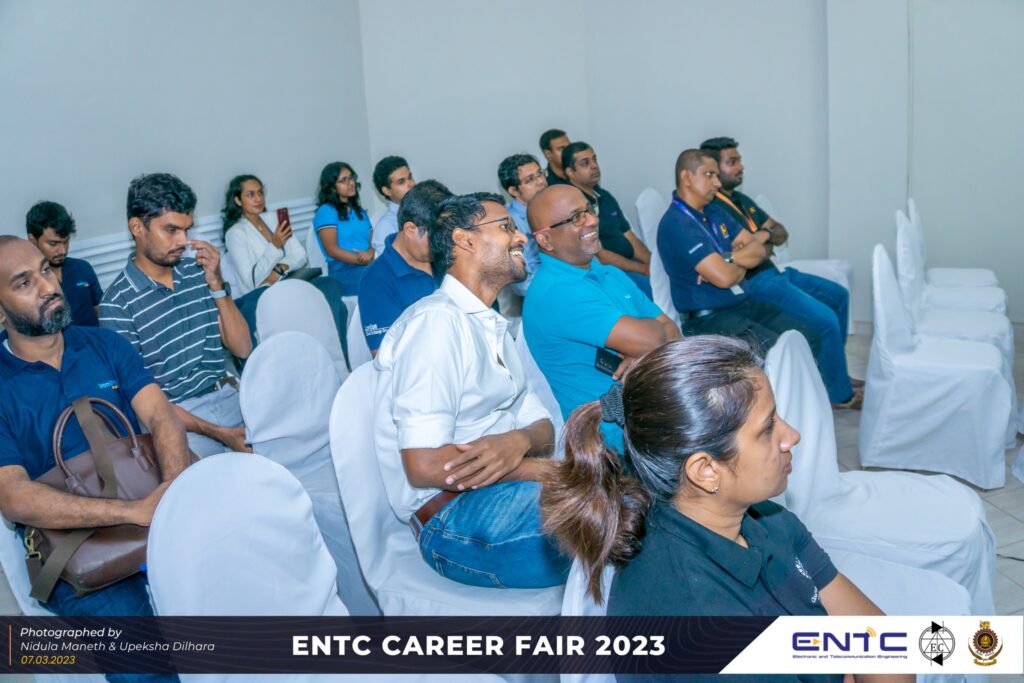
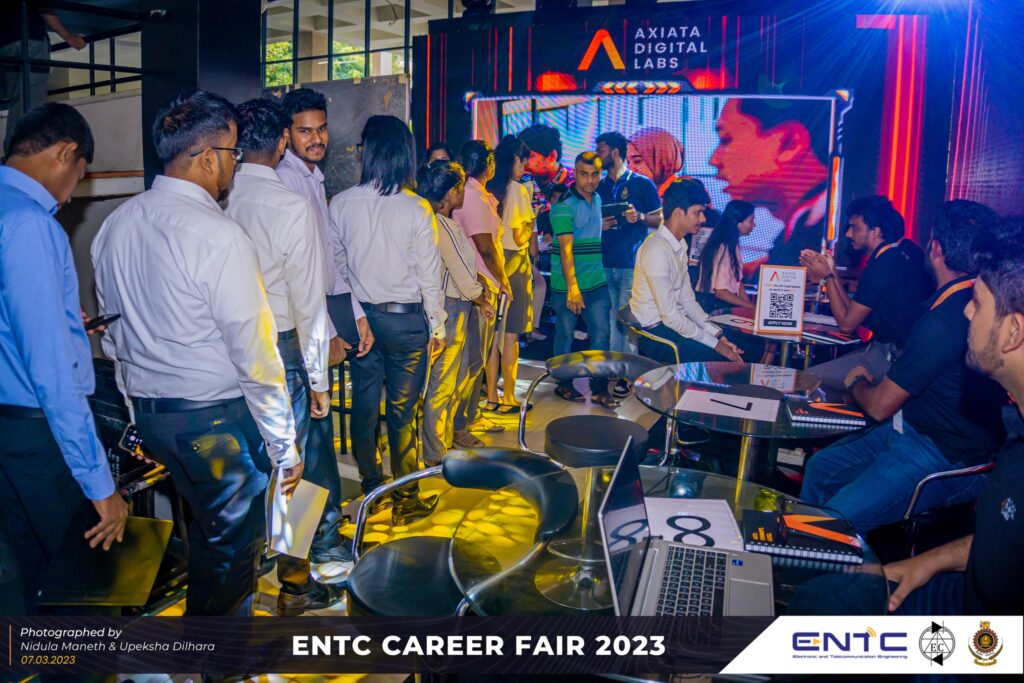
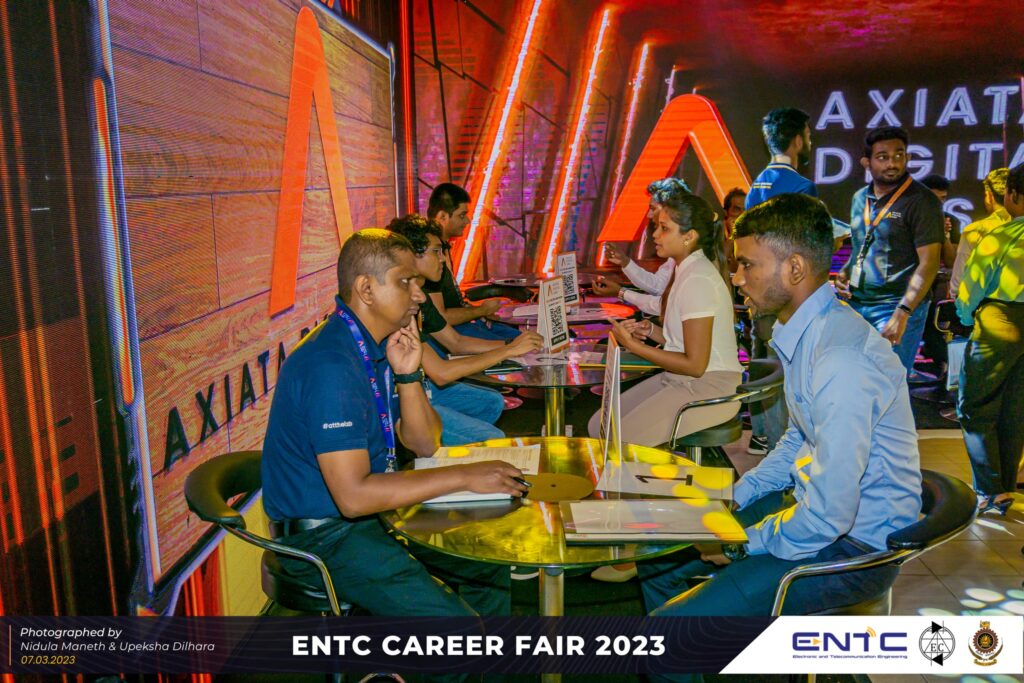
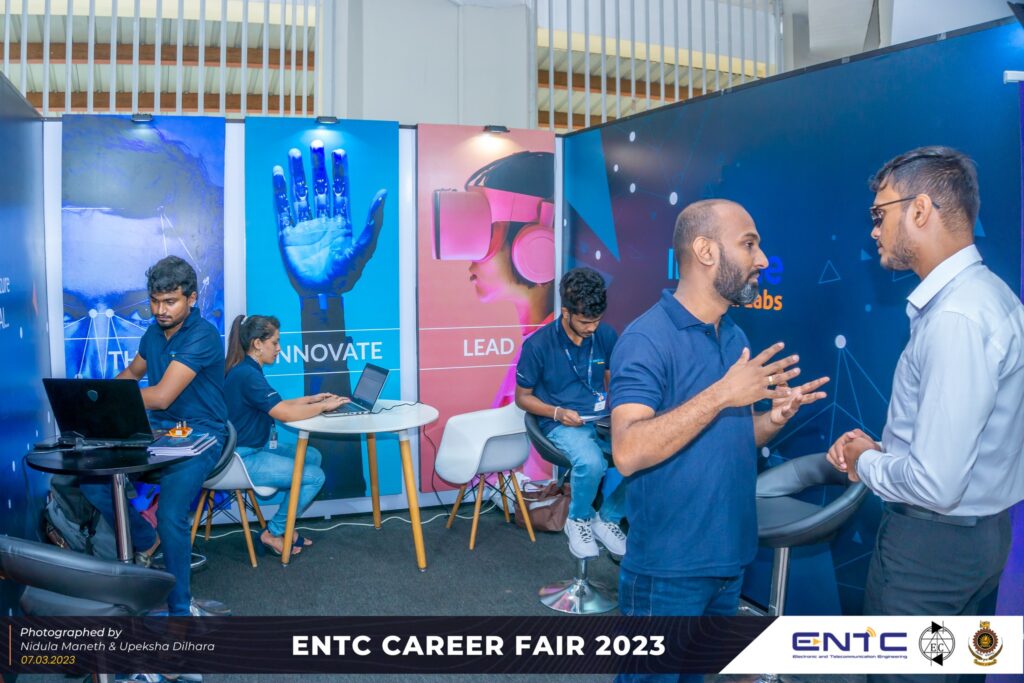
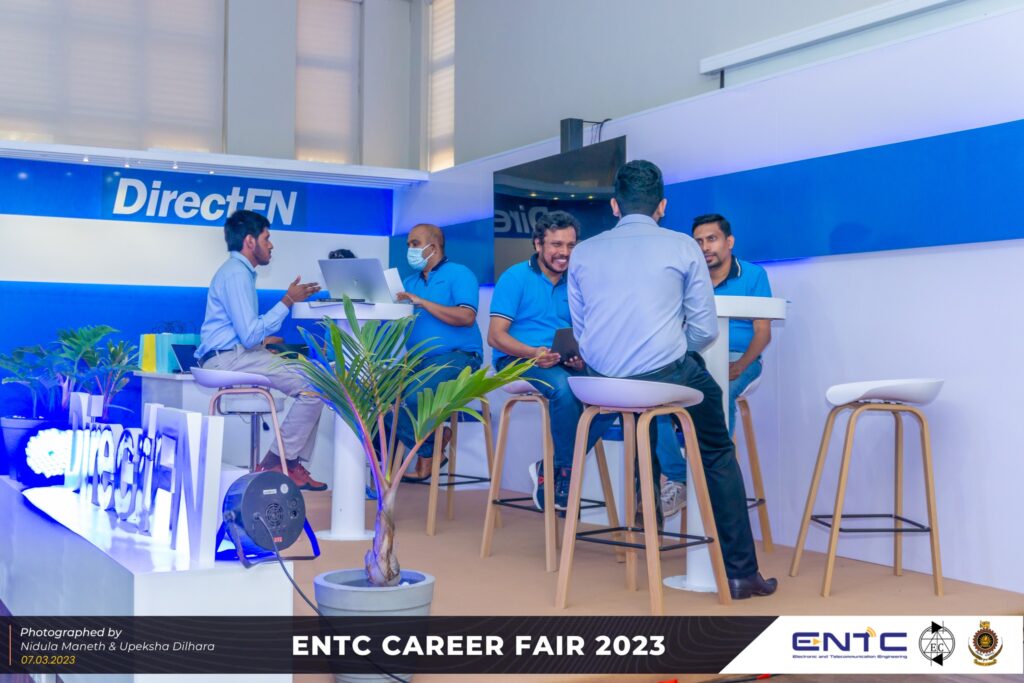
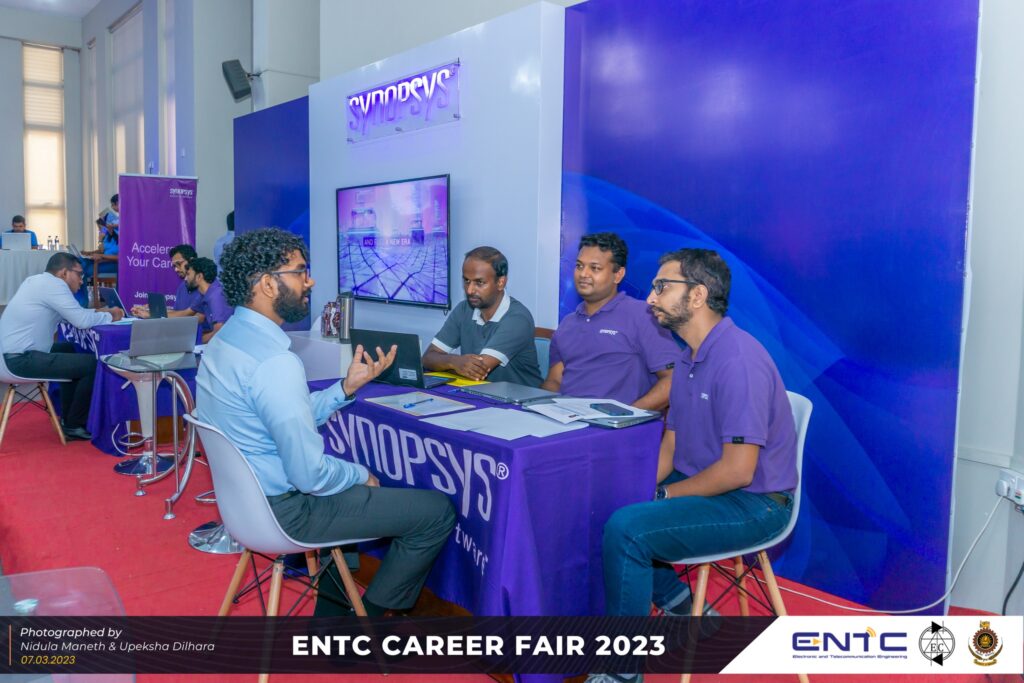
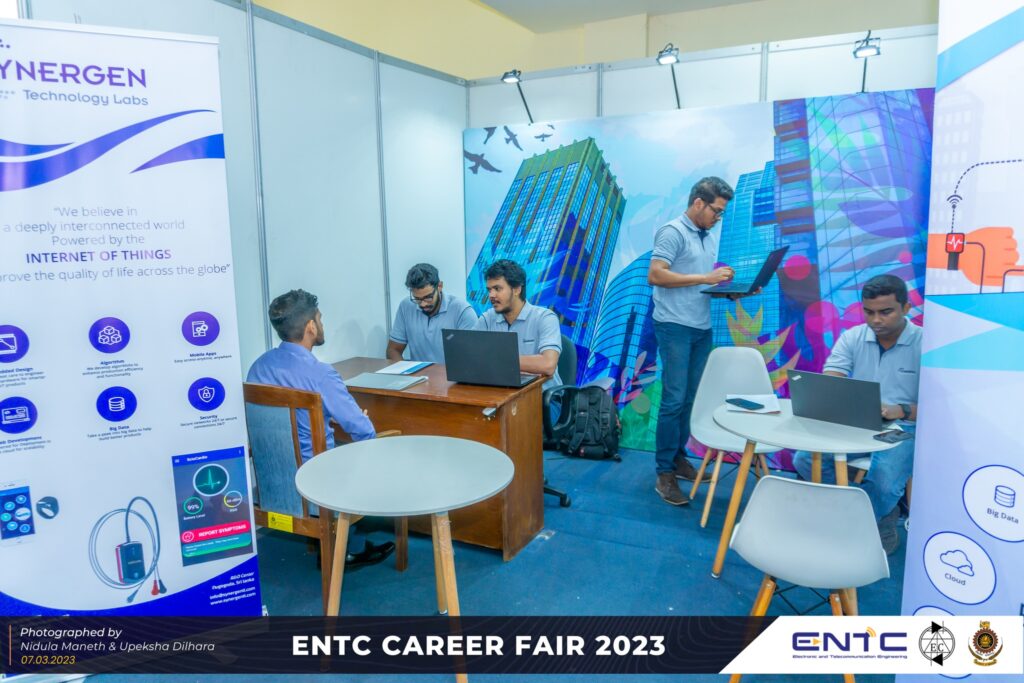
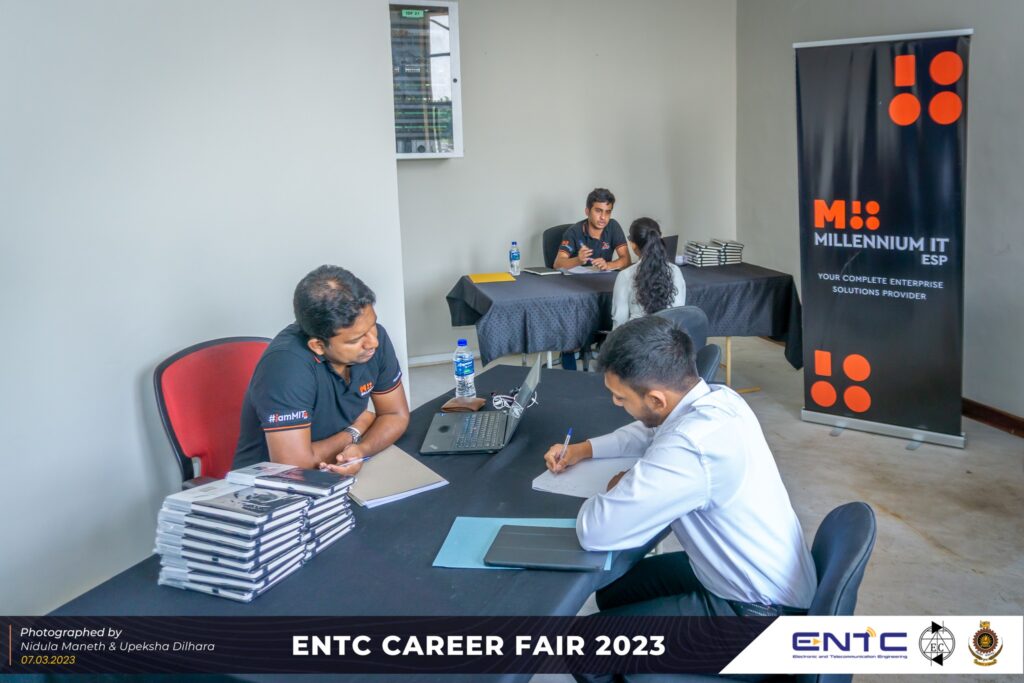
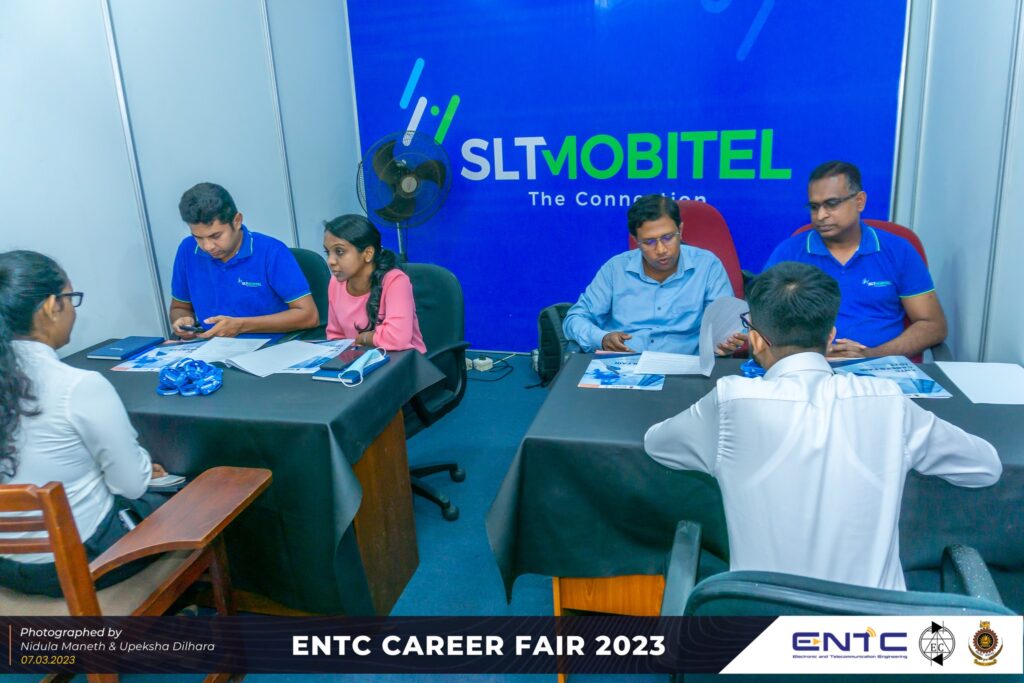
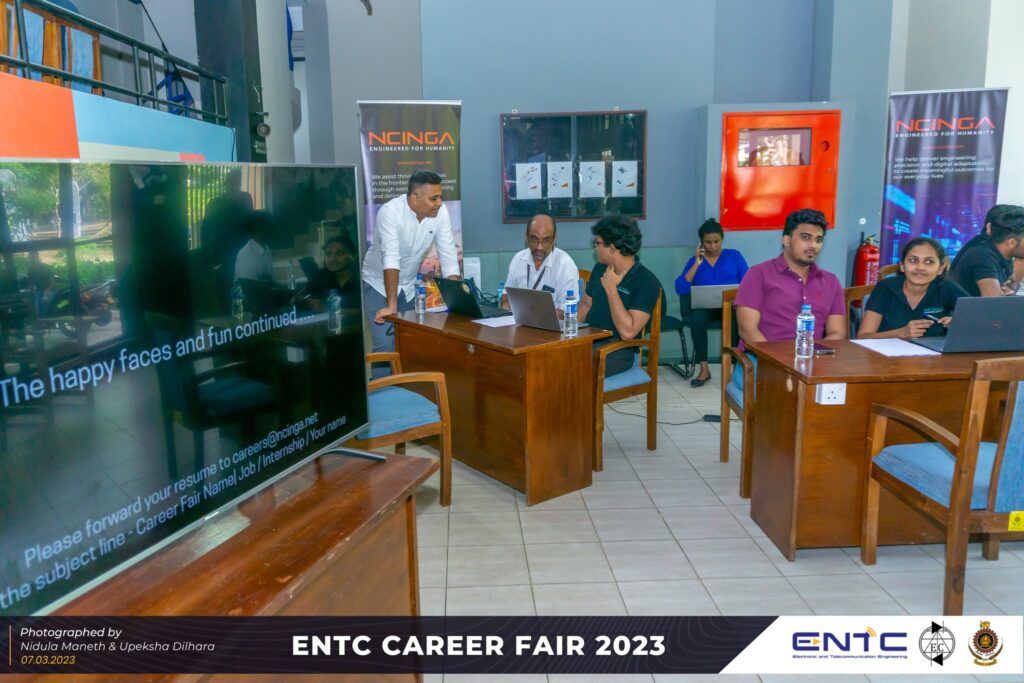
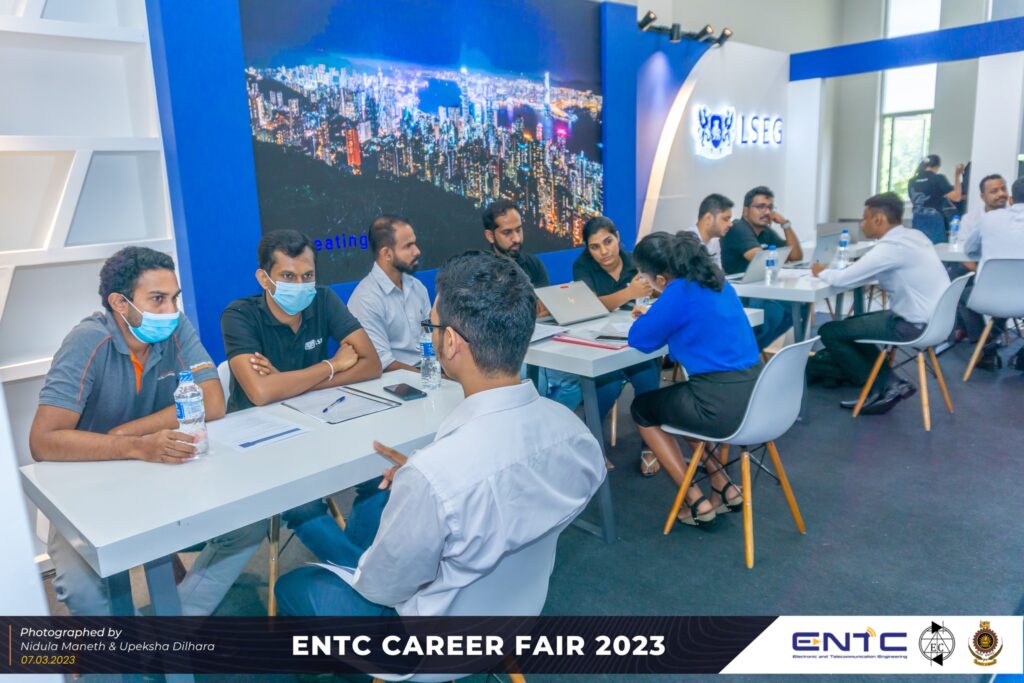
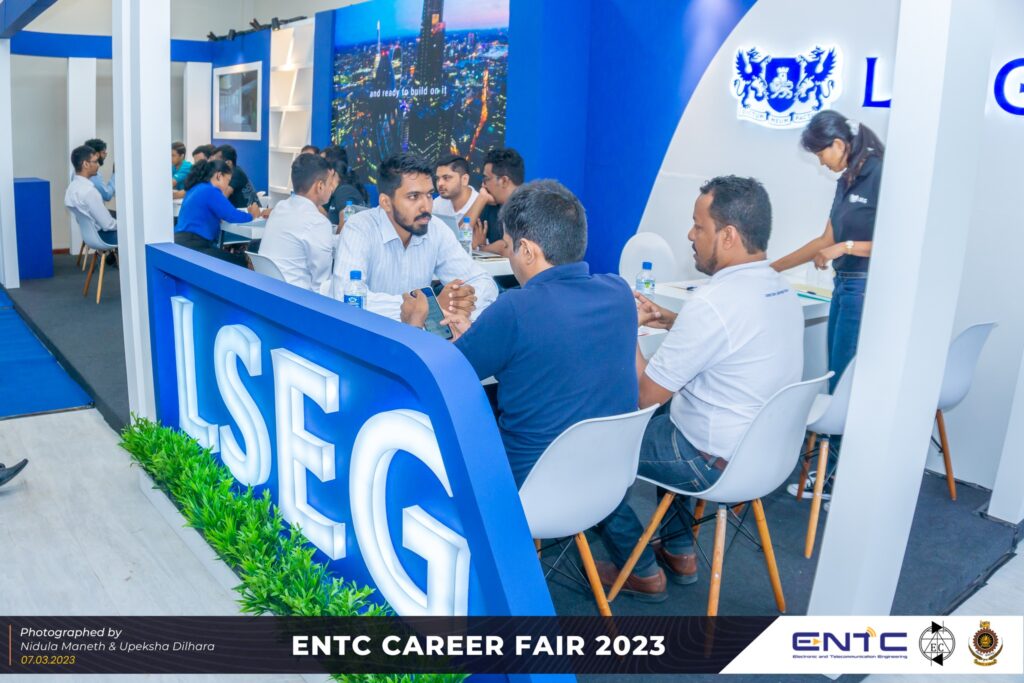
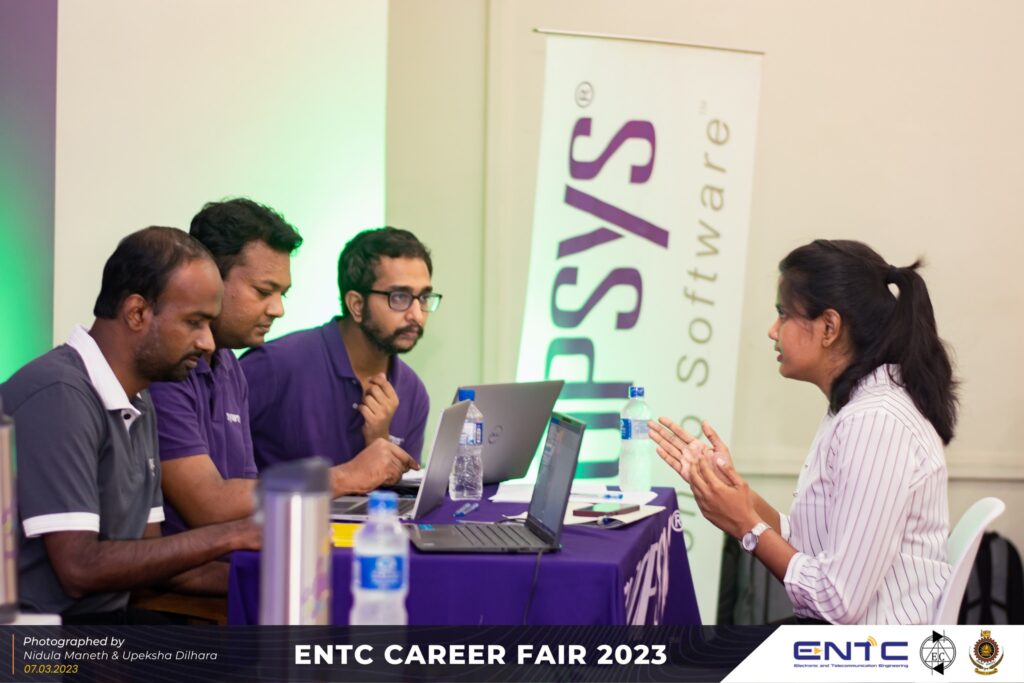
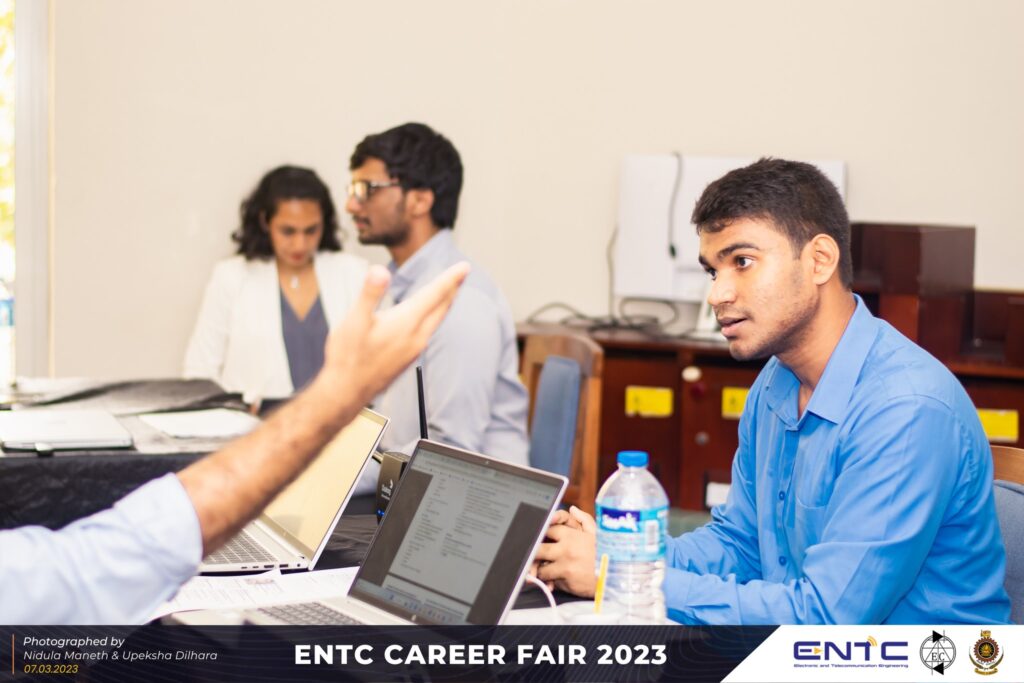
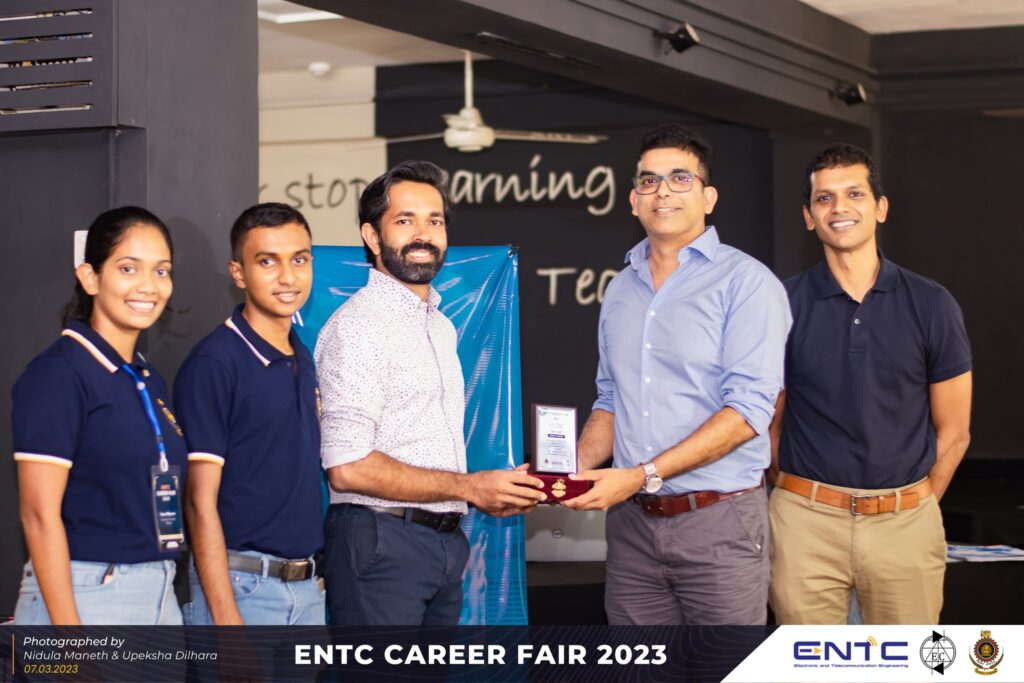
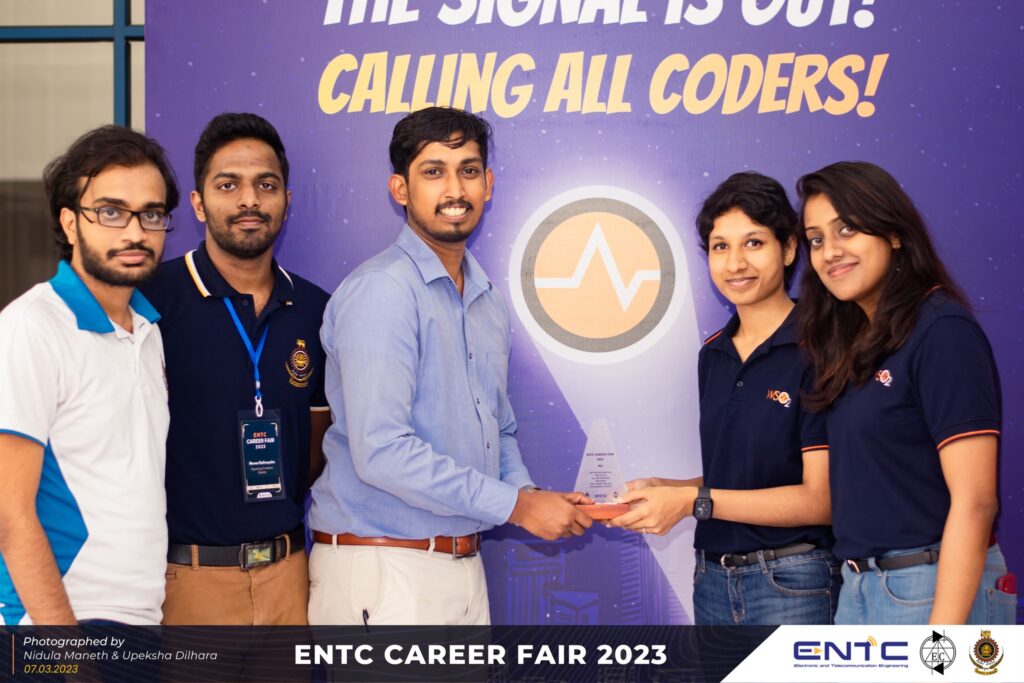
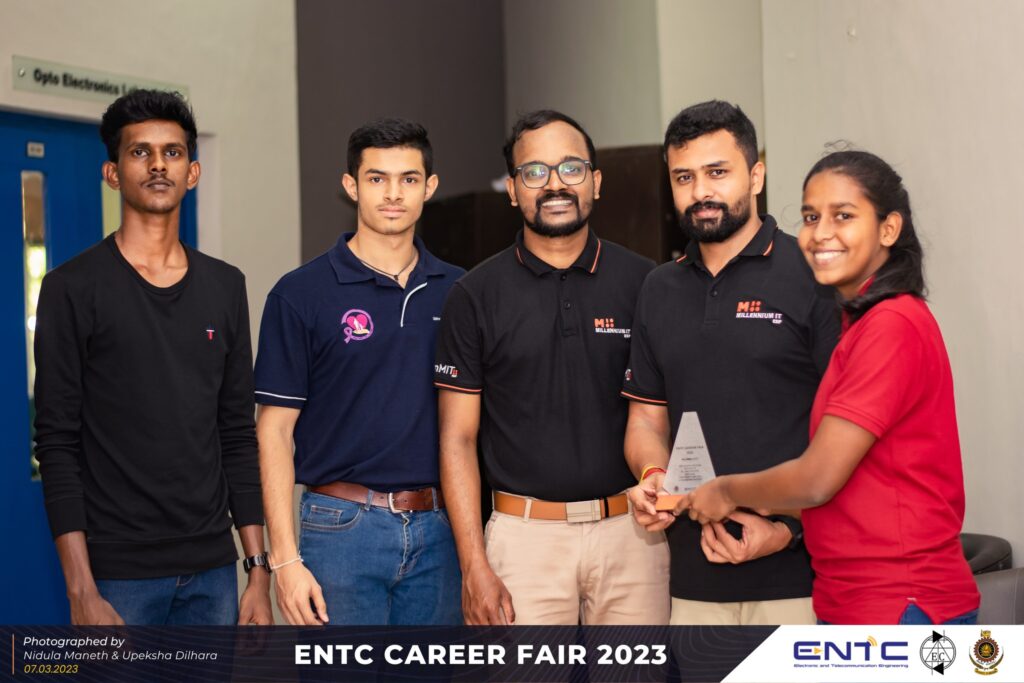
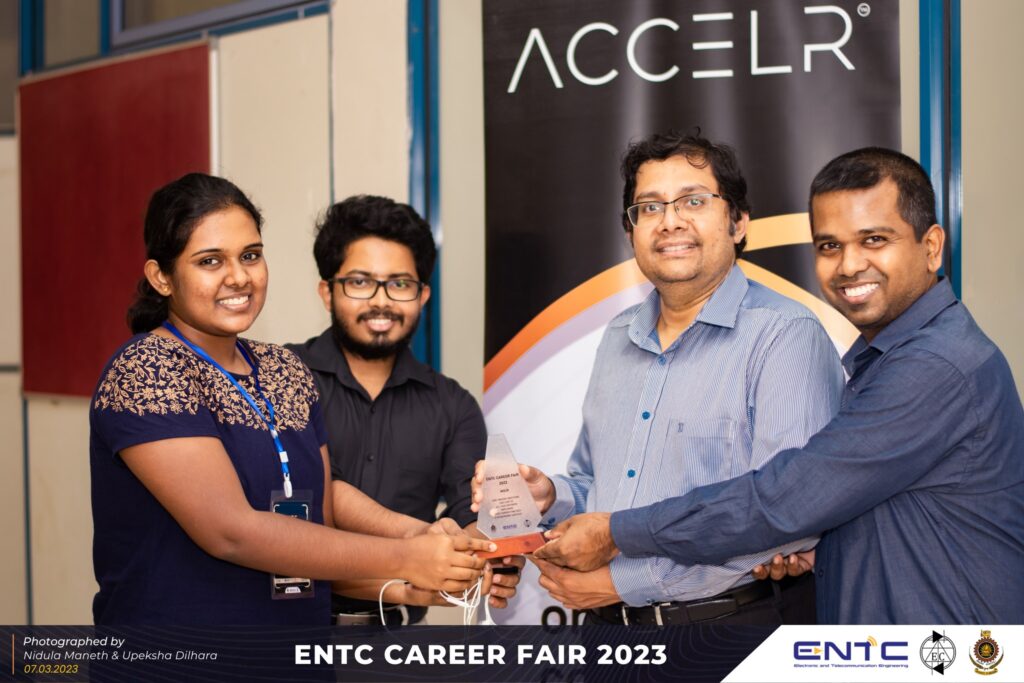

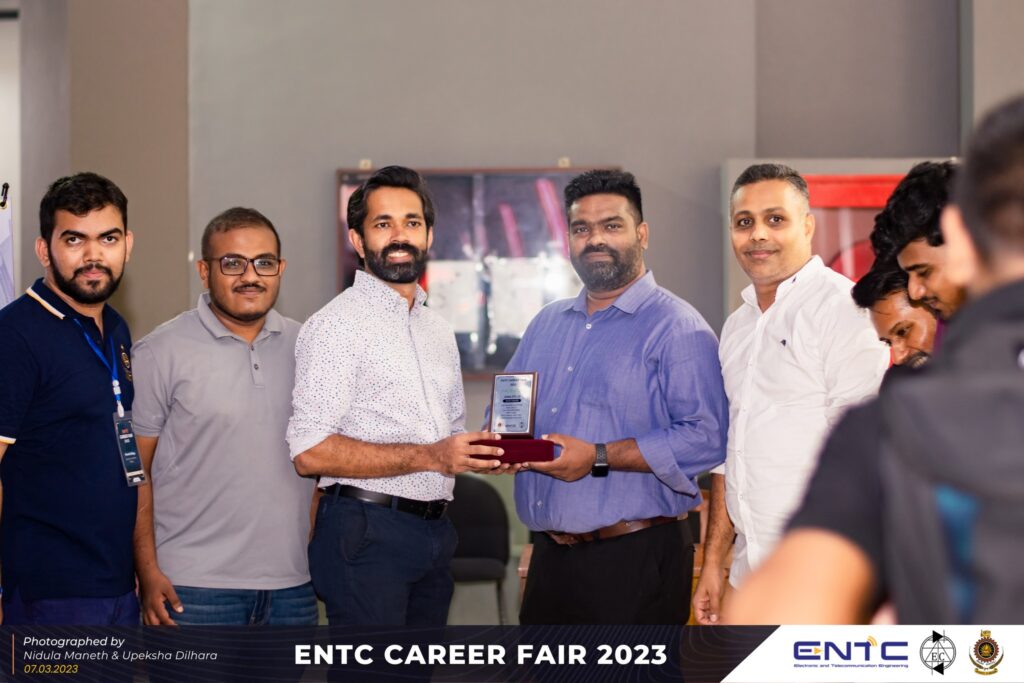
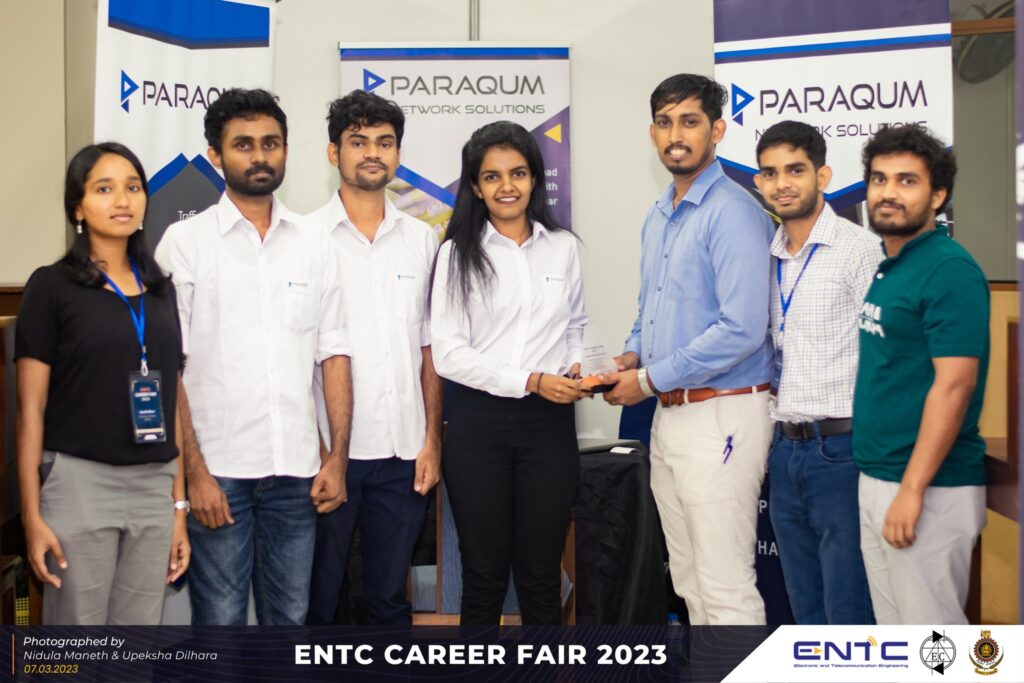
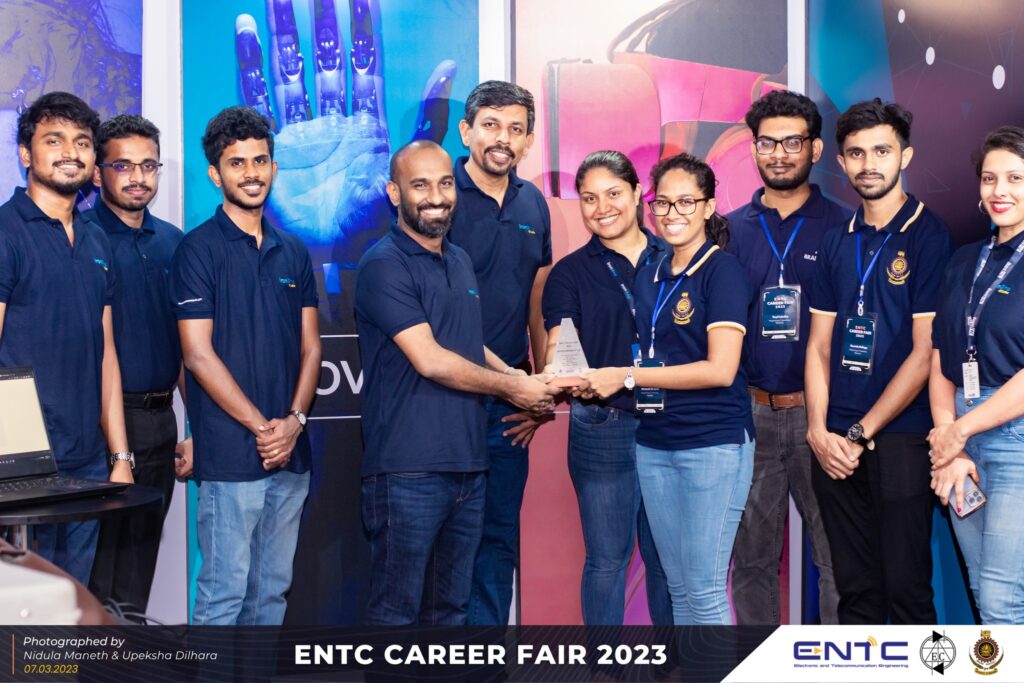
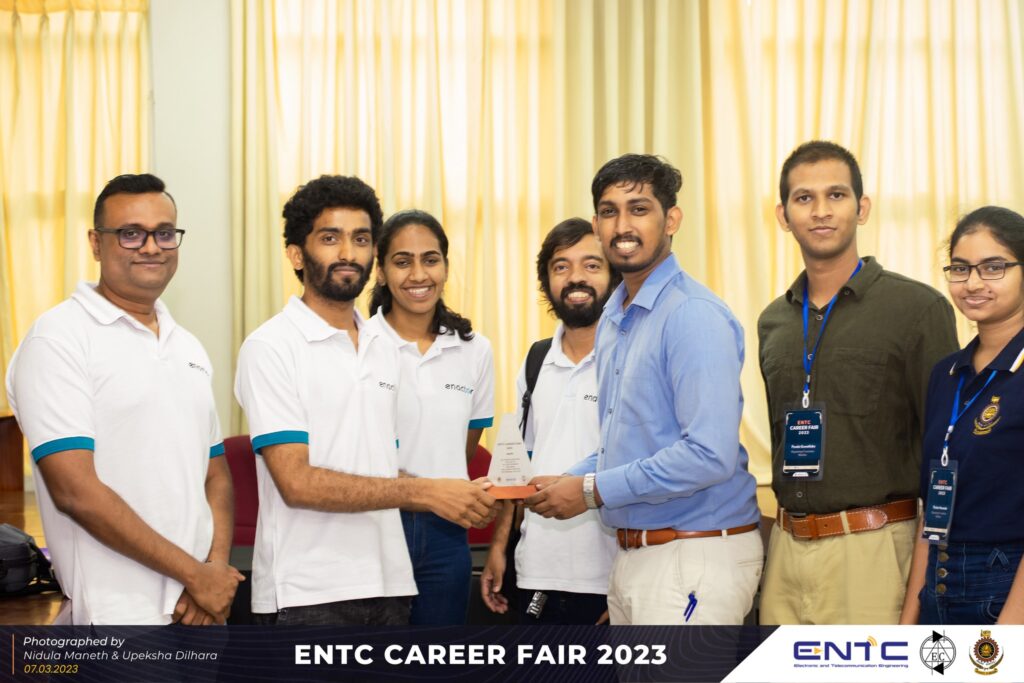
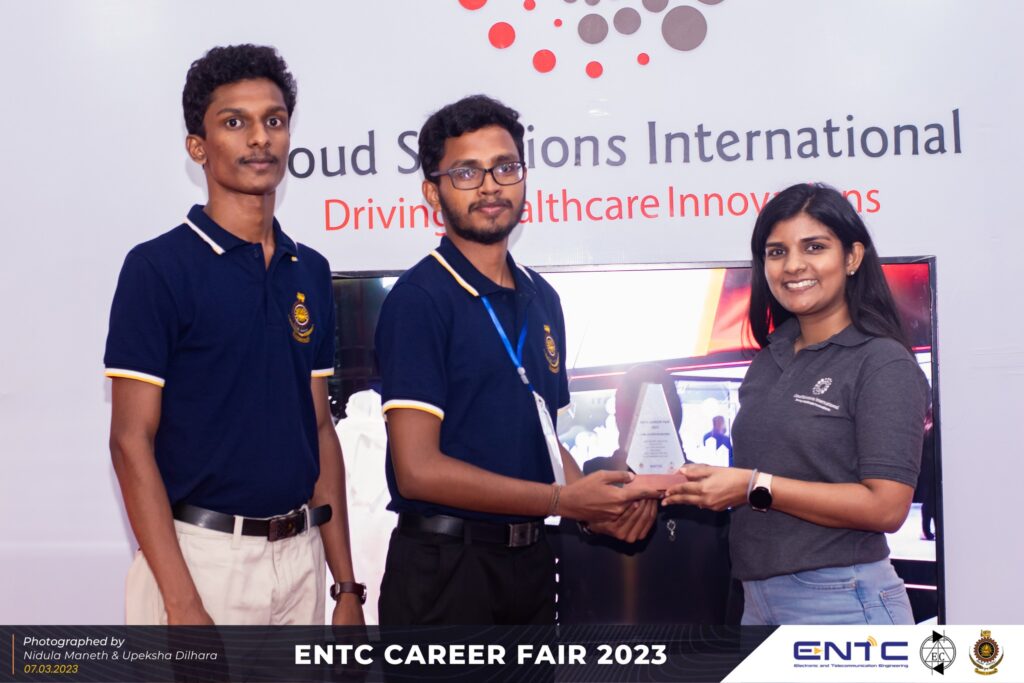
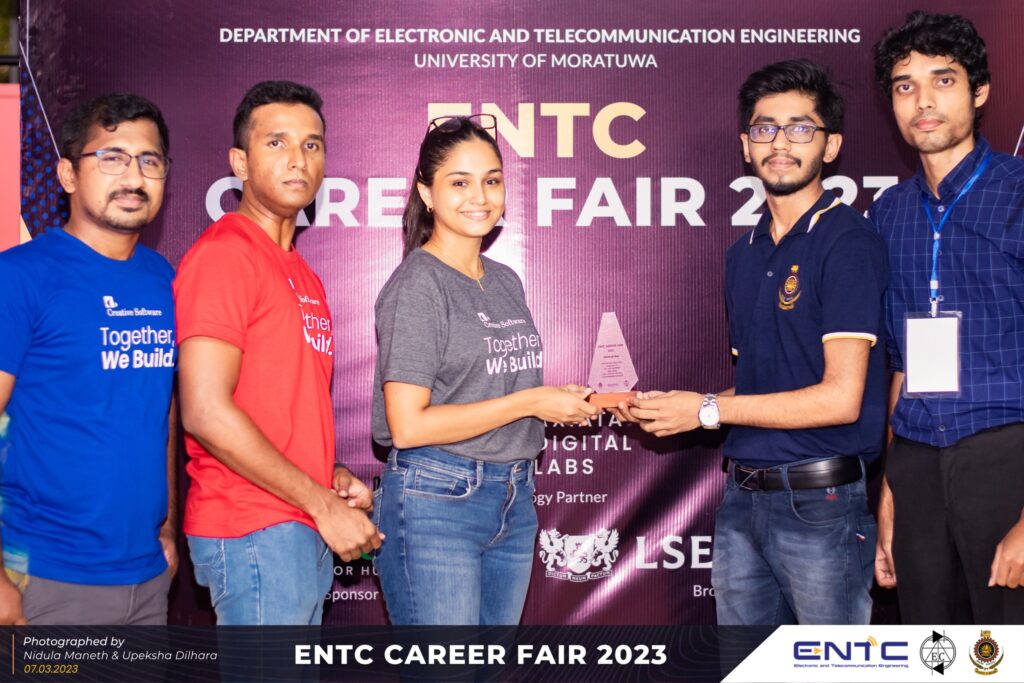
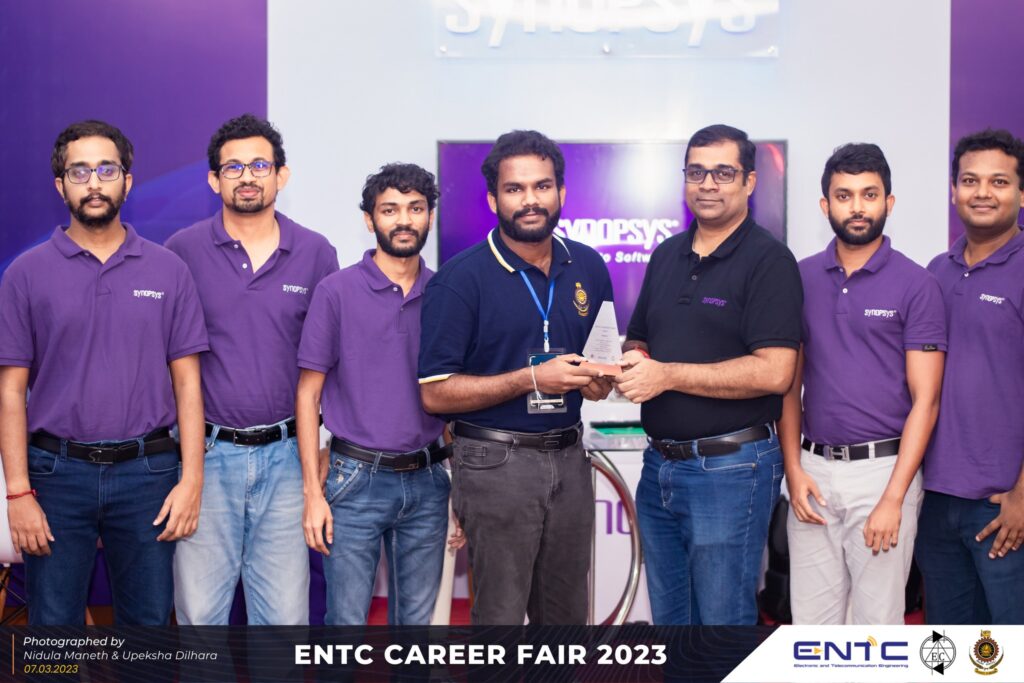
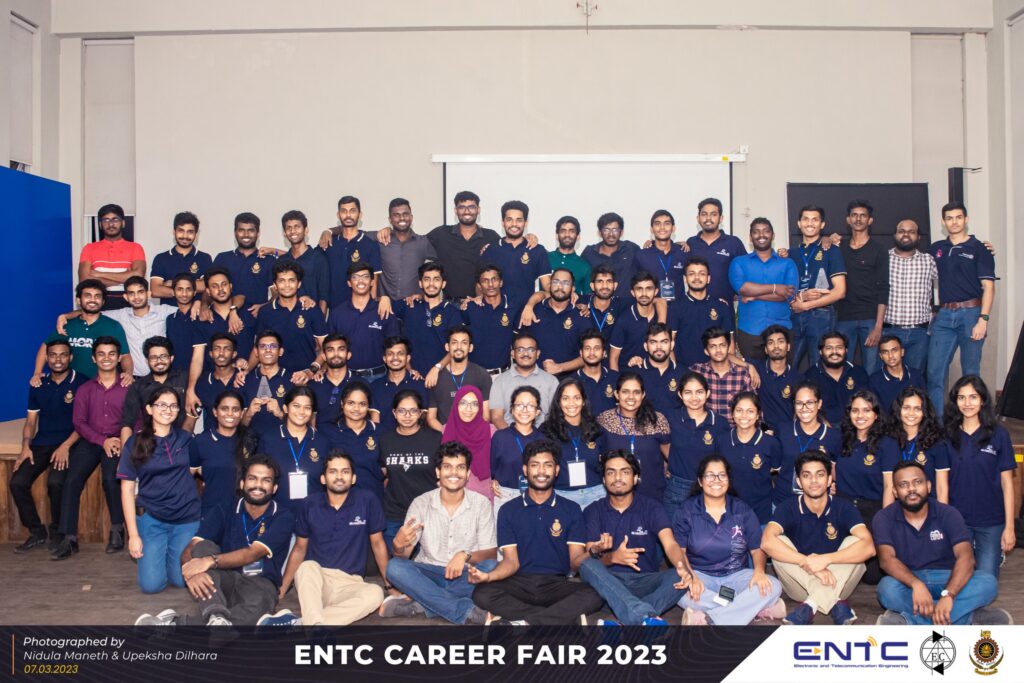
ENTC Open Day
The Department of Electronic and Telecommunication Engineering at the University of Moratuwa held an Open Day on January 17, 2023, to showcase the department’s facilities, projects, and laboratories to the new intake of students. The event was organized by the Electronic Club and saw a large number of students in attendance.
The Open Day began with a series of brief talks by the faculty members of the department, who provided an overview of the programs and opportunities available. The students were then given the opportunity to explore the department’s facilities and interact with faculty members and senior students.
The final year, third year, and second-year students actively participated in the event, organizing, demonstrating, and explaining various aspects of the department’s projects and facilities to the prospective students.
The Open Day showcased many projects, including final-year projects in computer vision, metaverse, augmented reality, unmanned aerial vehicles (UAVs), machine learning, software-defined radio, mobile robotics, electronics, and processor design. In addition, the second-semester projects were also demonstrated.
The prospective students were taken on a tour of the department’s various laboratories, including the biomedical engineering laboratory, analog electronics laboratory, digital electronics laboratory, telecommunication laboratory, computer vision laboratory, unmanned aerial vehicles laboratory, and K. K. Y. W. Perera Mobile Communications laboratory, among many other facilities.
The Open Day was well-received by the students, who appreciated the opportunity to experience the department’s facilities and projects first-hand. Many of the prospective students expressed their interest in pursuing a career in electronic and telecommunication engineering, noting the exciting and diverse range of projects and opportunities available within the field.
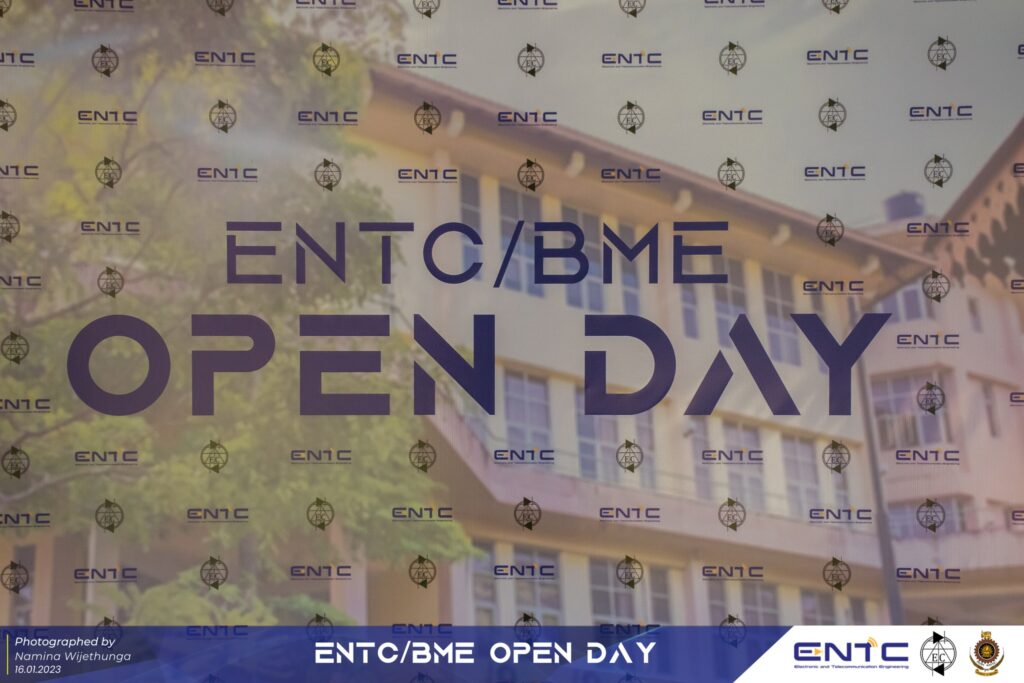
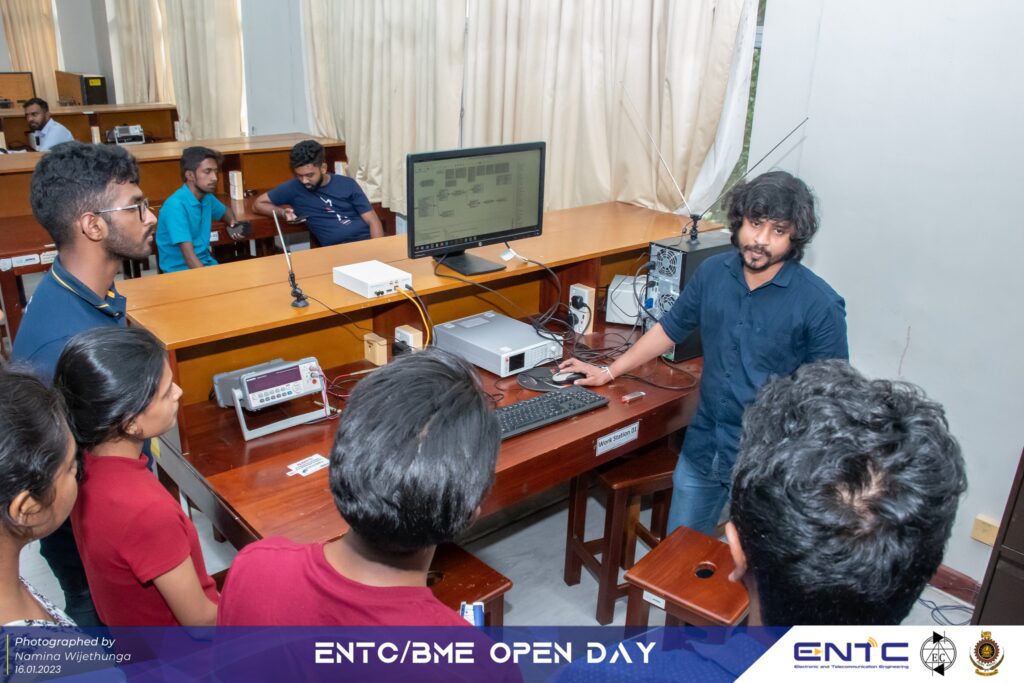
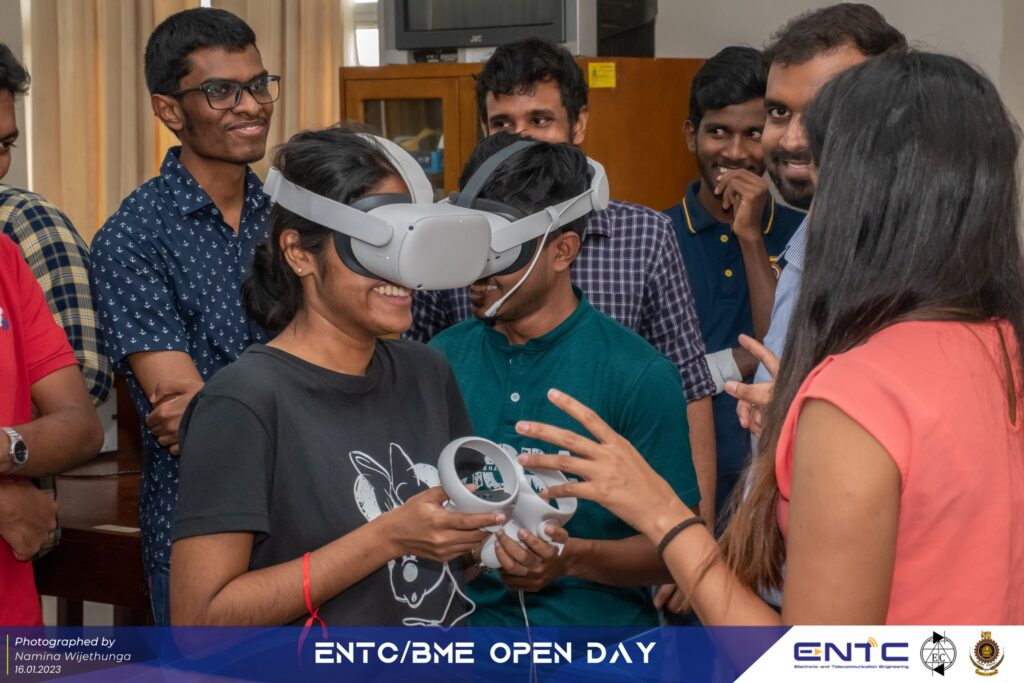
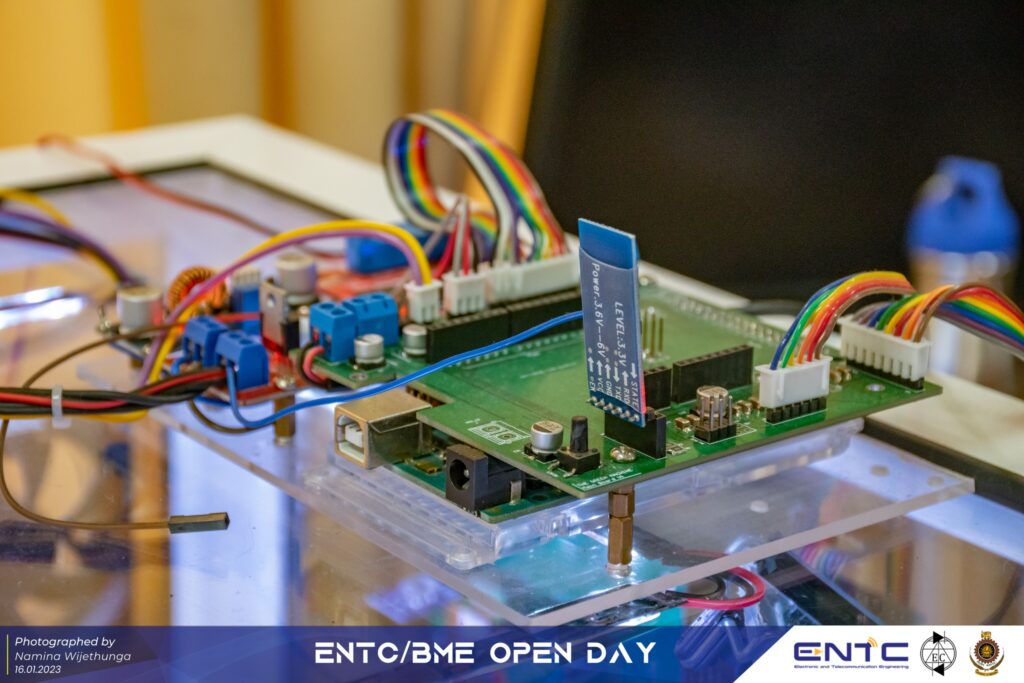
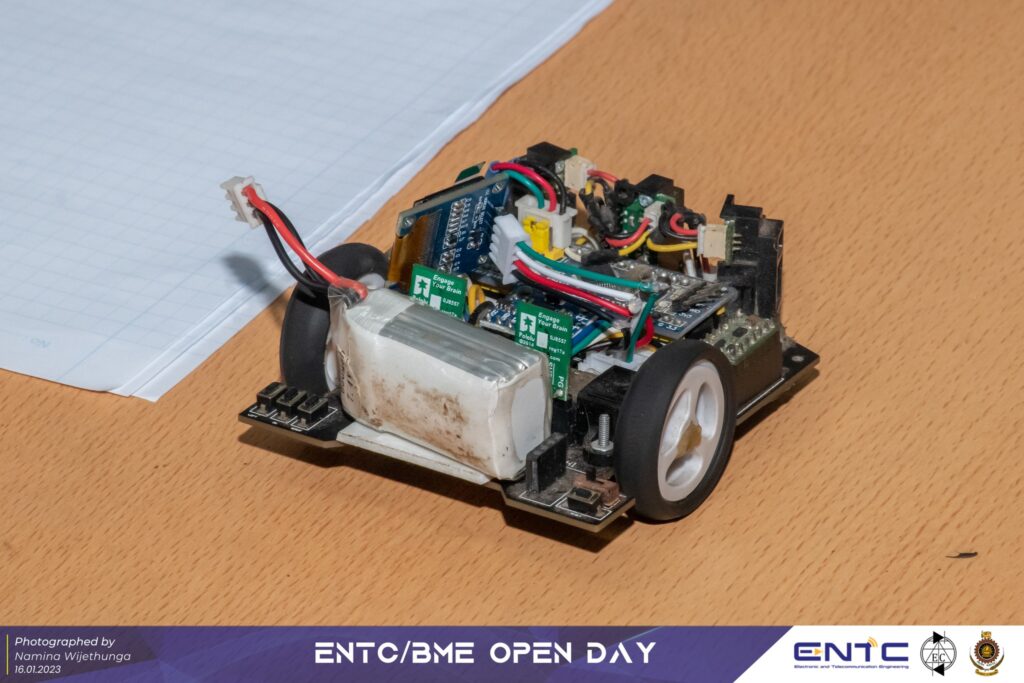
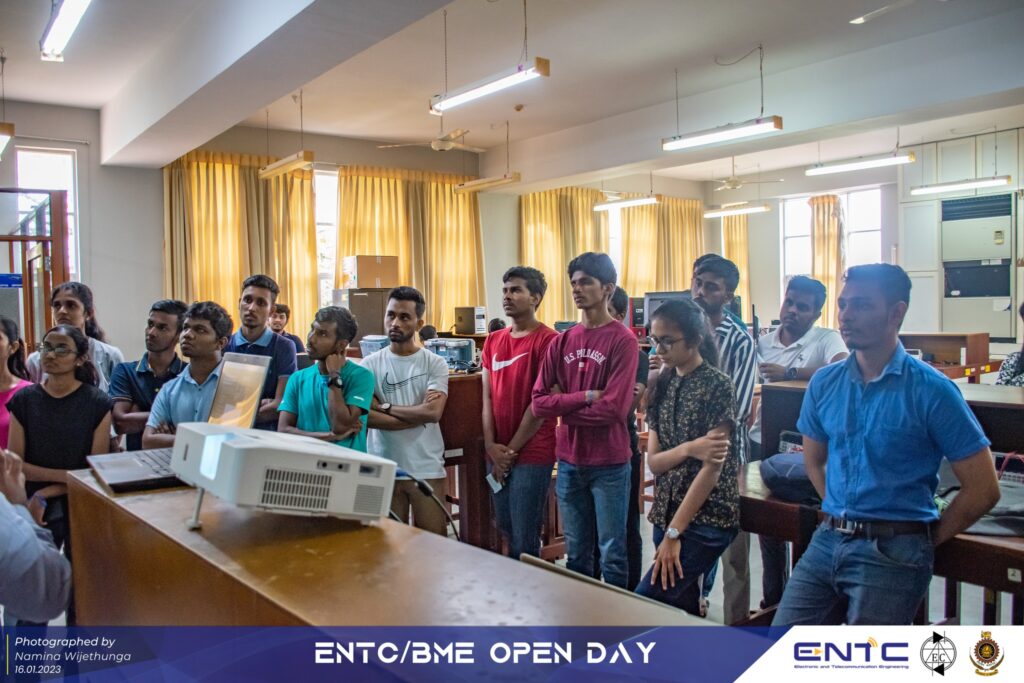
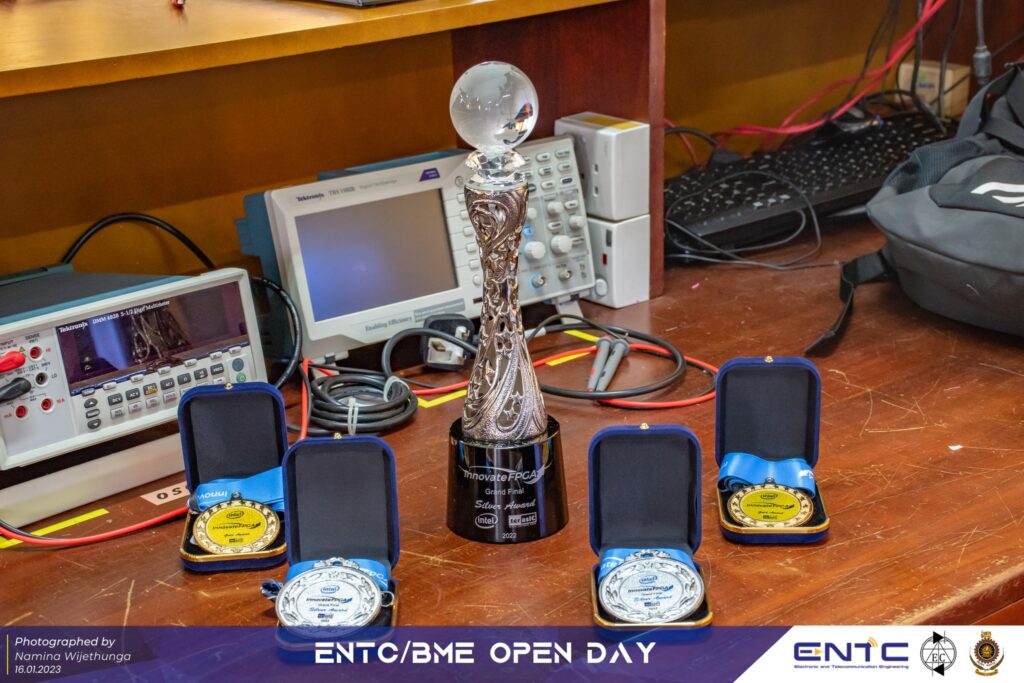
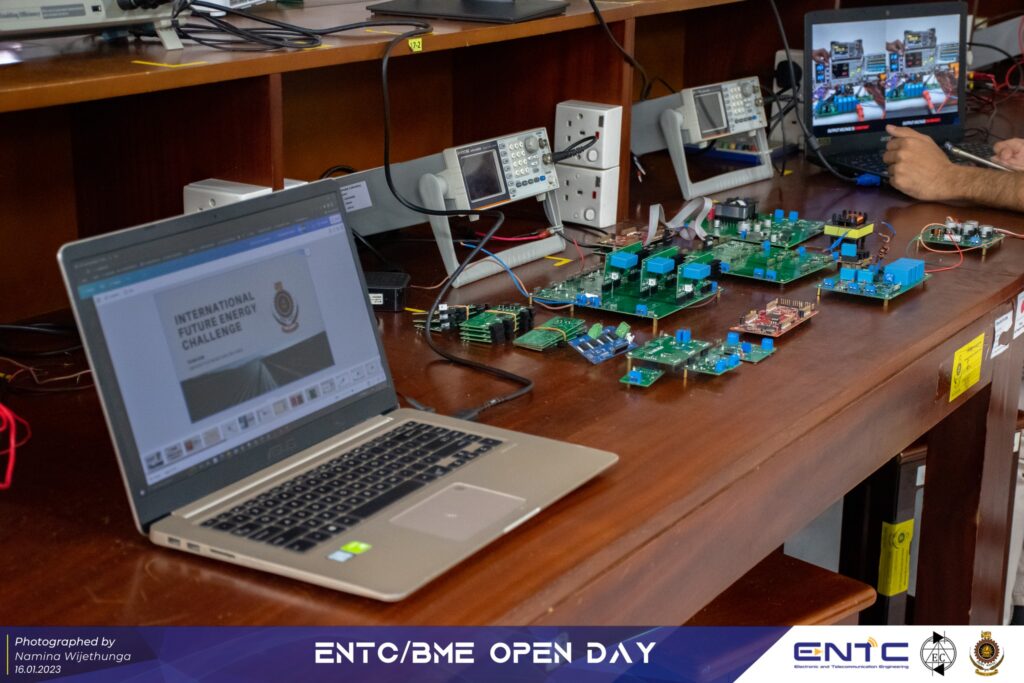
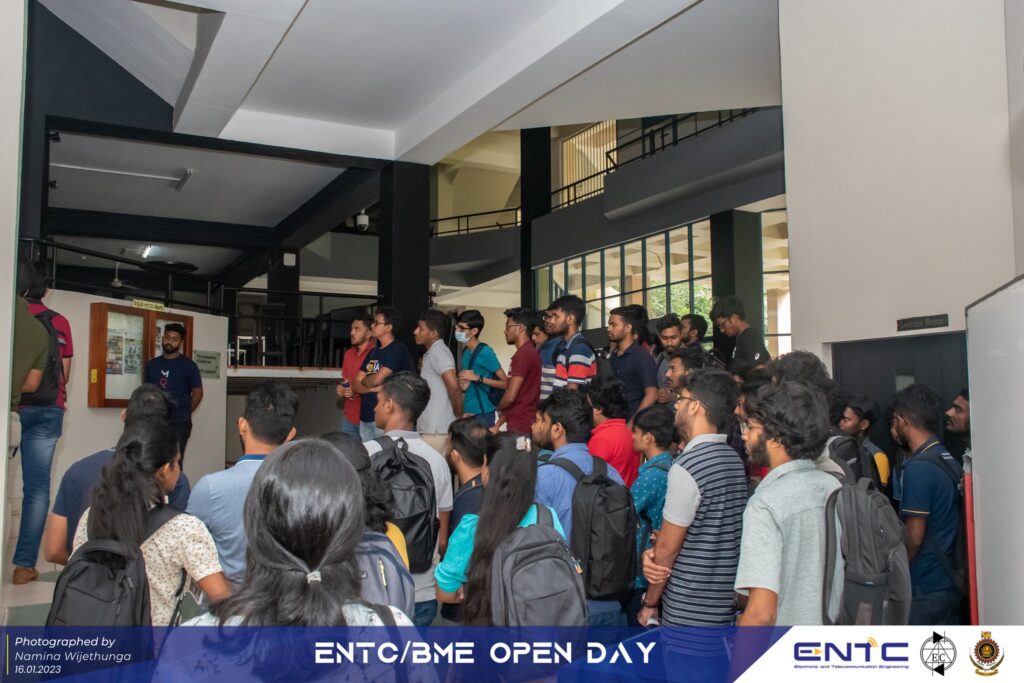
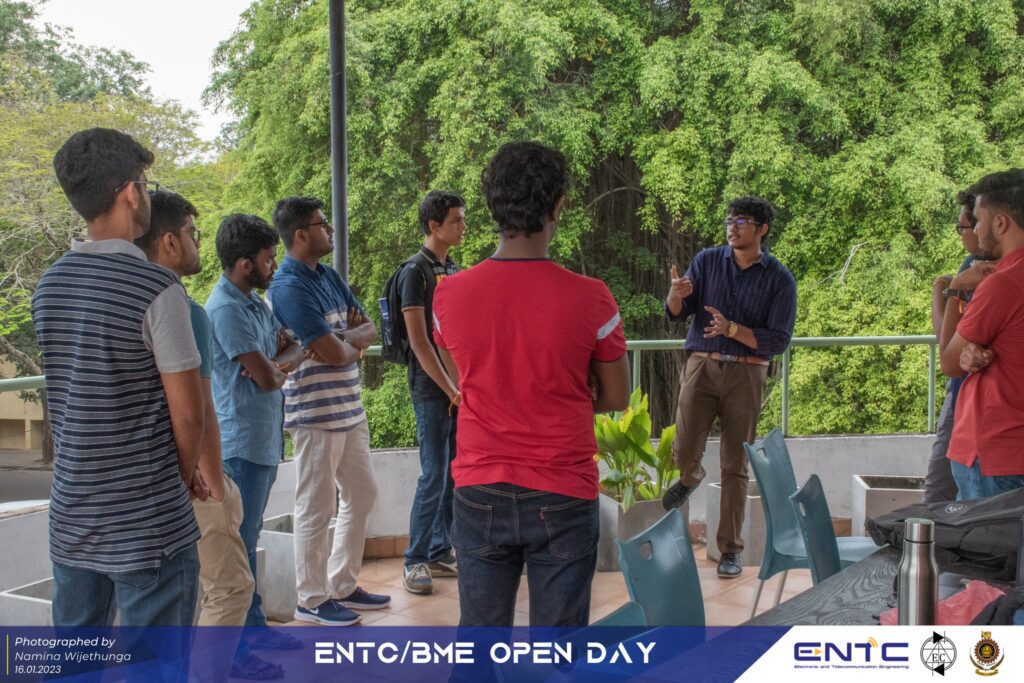
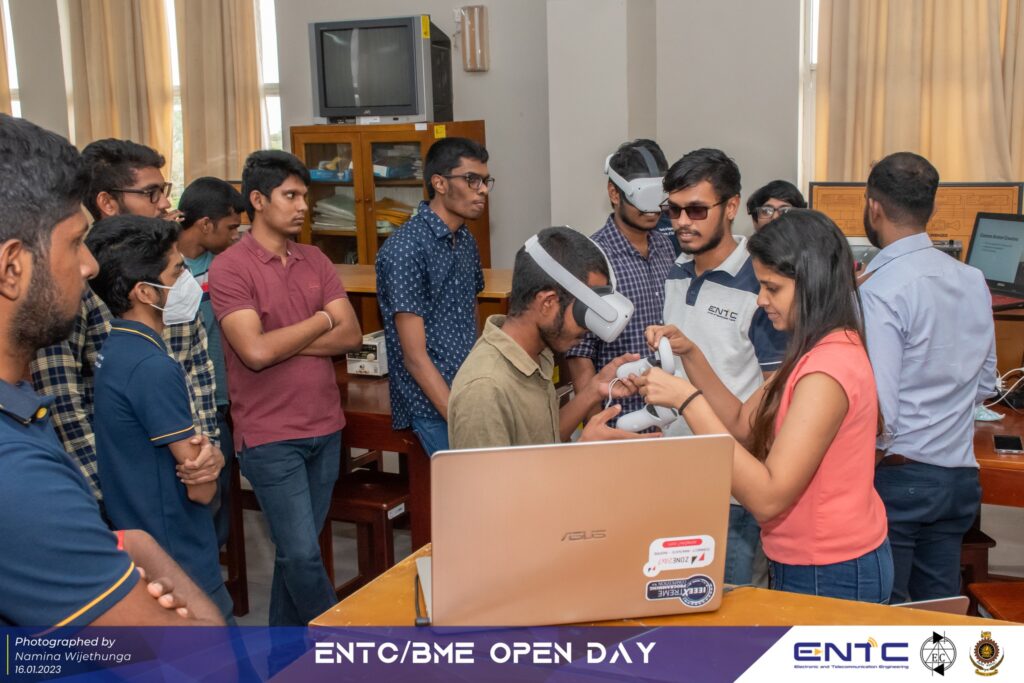
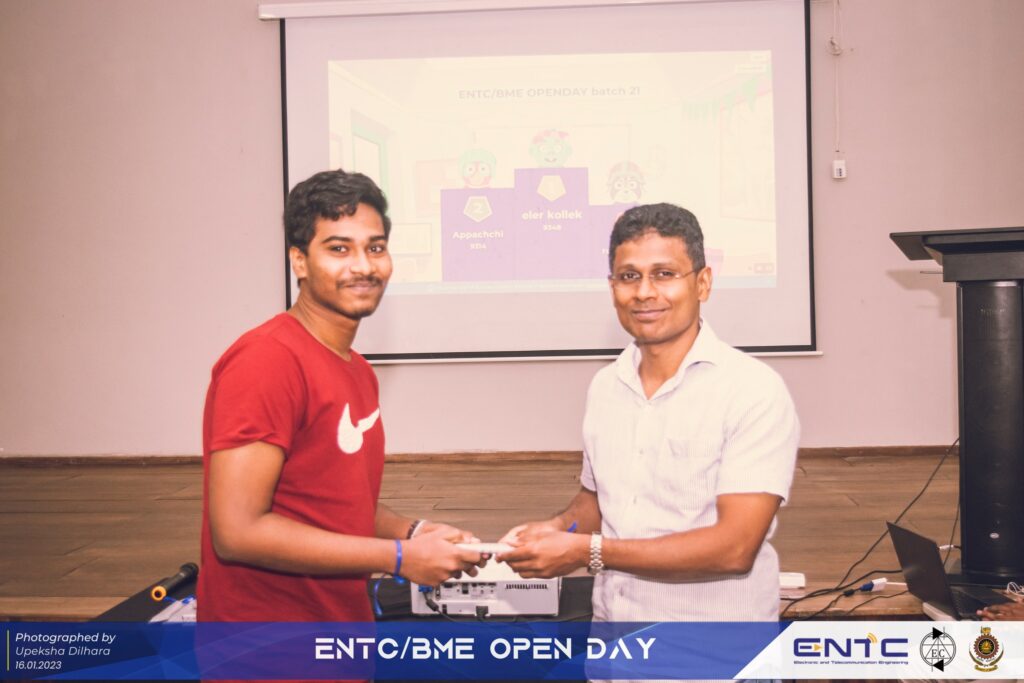
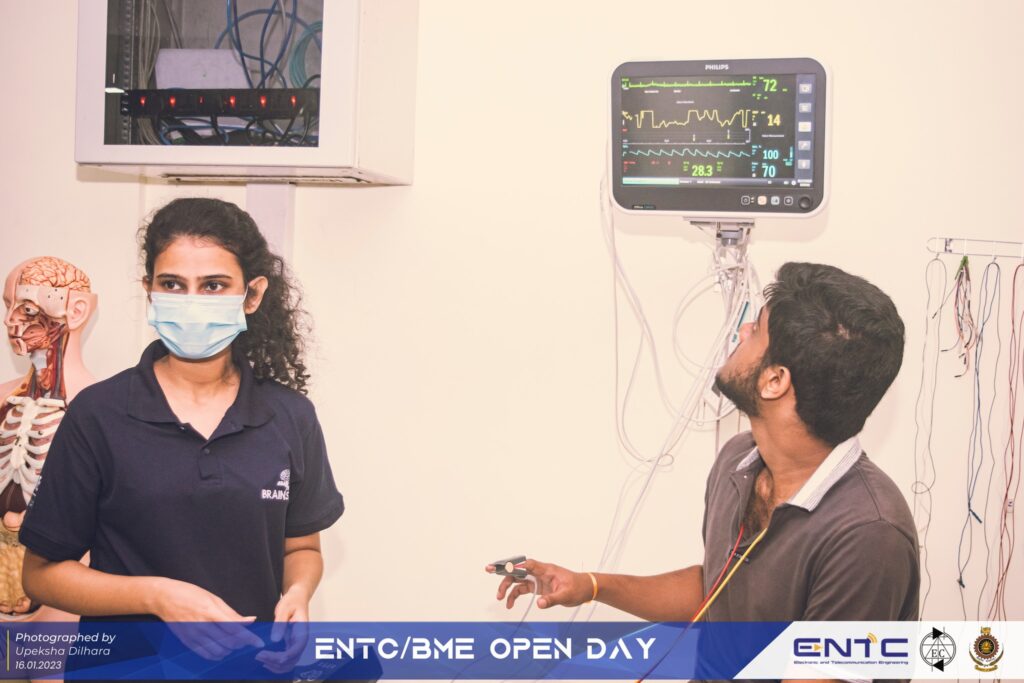
The Sri Lanka Robotics Challenge Final School Workshop and Closing Ceremony
The Sri Lanka Robotics Challenge (SLRC) Final School Workshop was successfully held on Wednesday, December 7th, 2022, at the Department of Electronic and Telecommunication Engineering (ENTC) of the University of Moratuwa. The workshop marked the culmination of a series of training programs organized to equip school students with the necessary skills to design a mobile robot for participation in the Sri Lanka Robotics Challenge.
The SLRC is the premier robot competition in Sri Lanka and has been organized by the ENTC for the 10th consecutive year. This year’s challenge has seen an impressive turnout of school students who have shown a keen interest in the field of robotics. The training program included a series of workshops that provided hands-on experience in designing and building a robot.
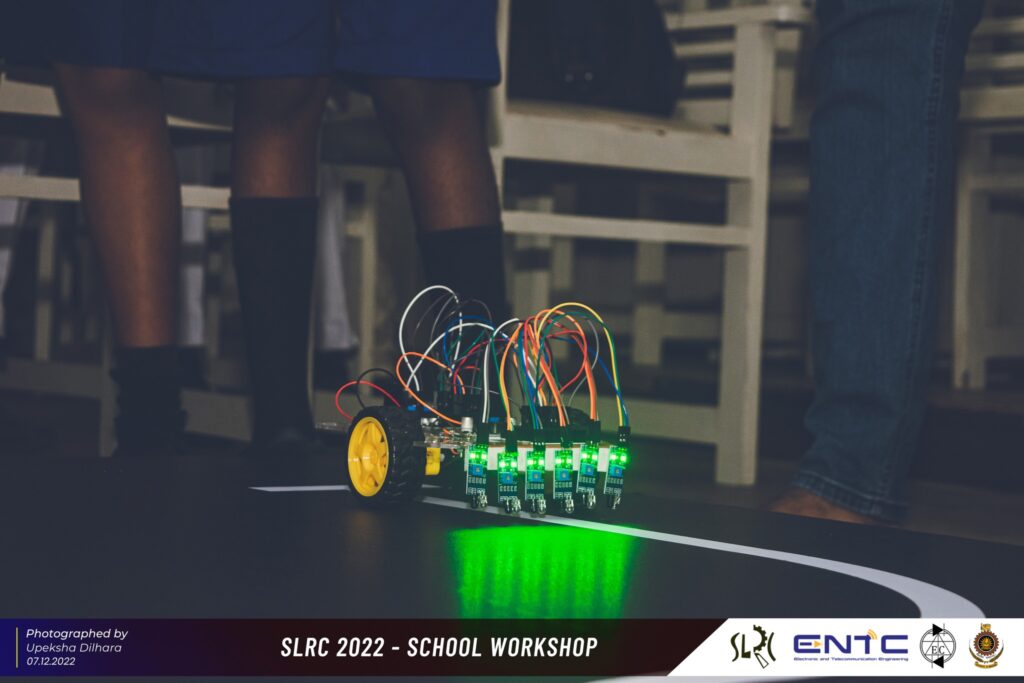
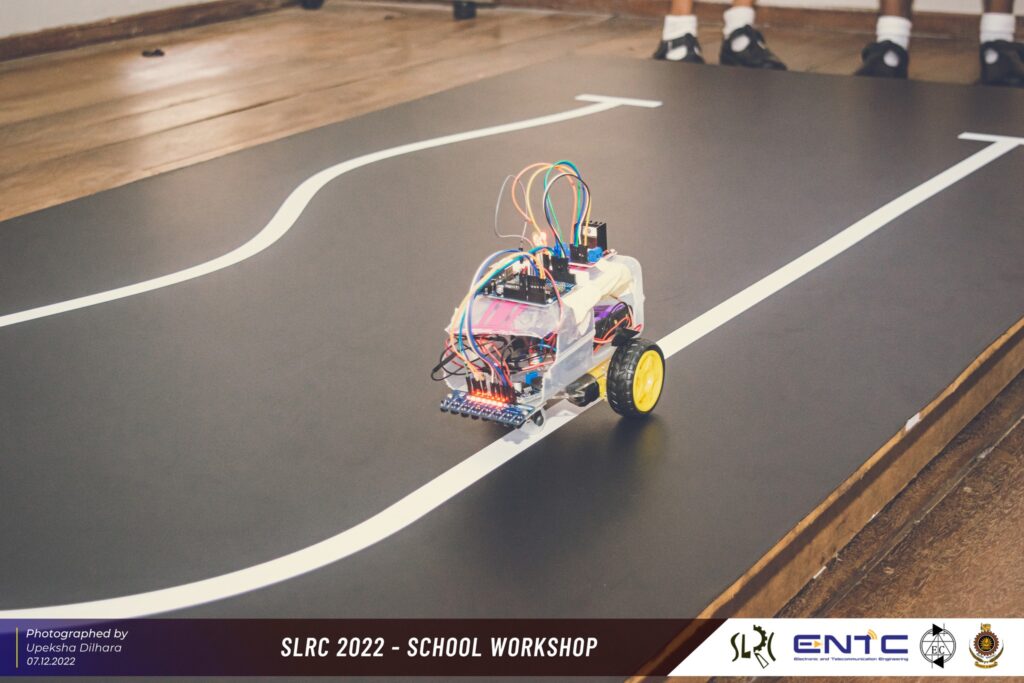
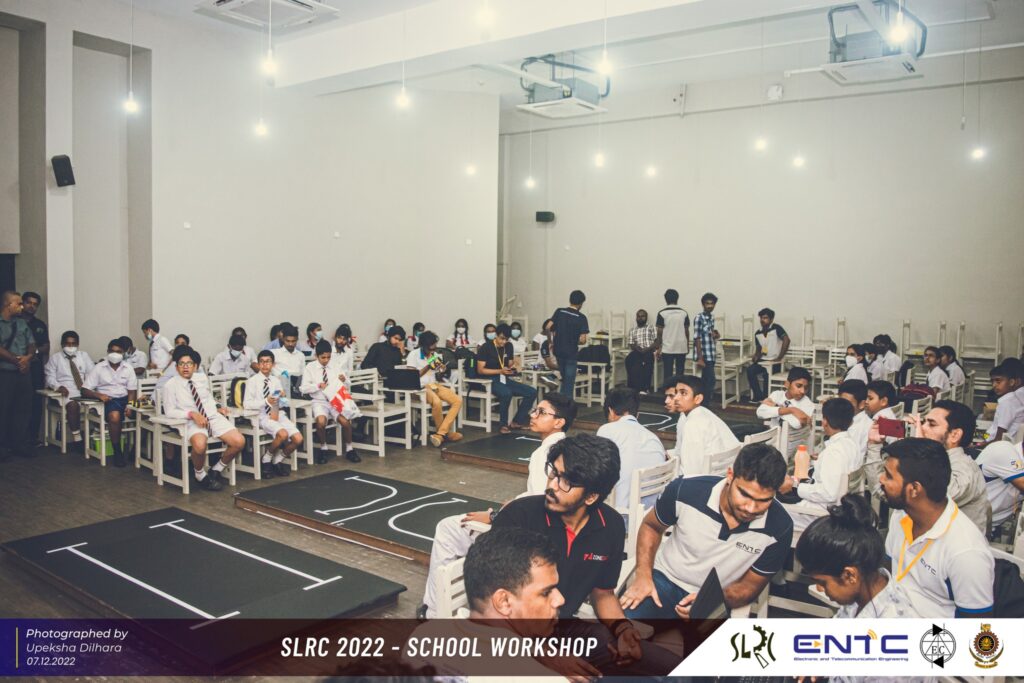
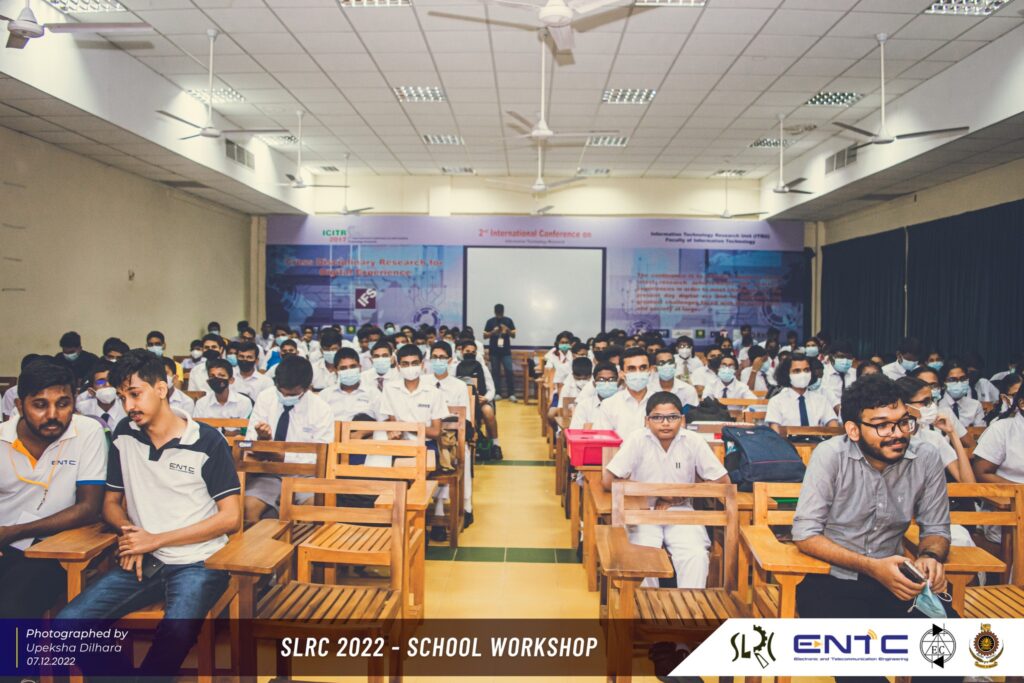
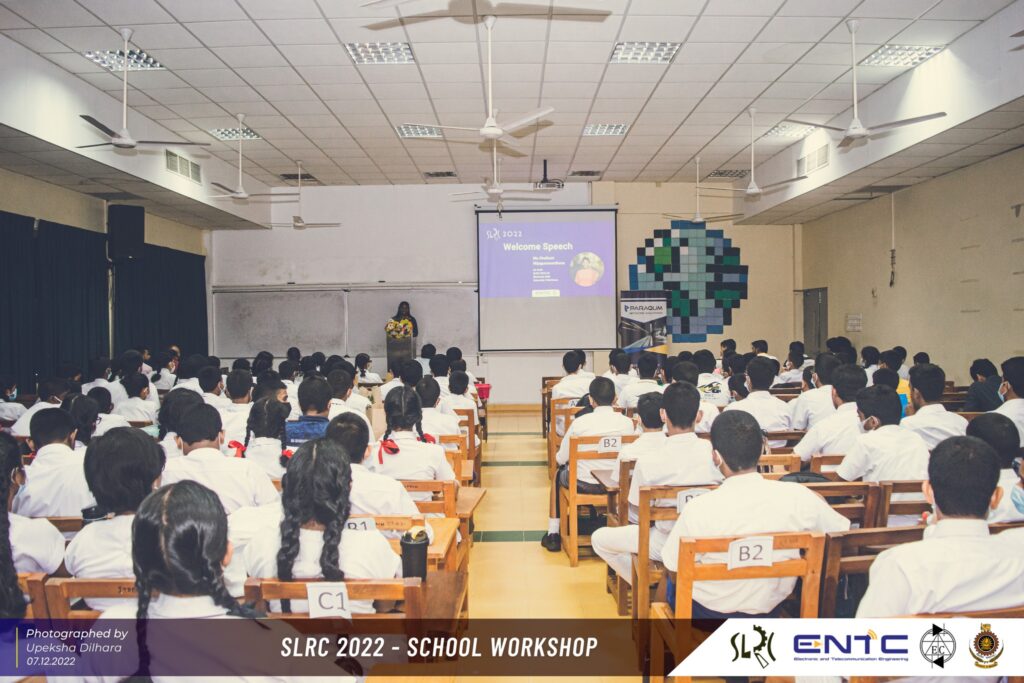
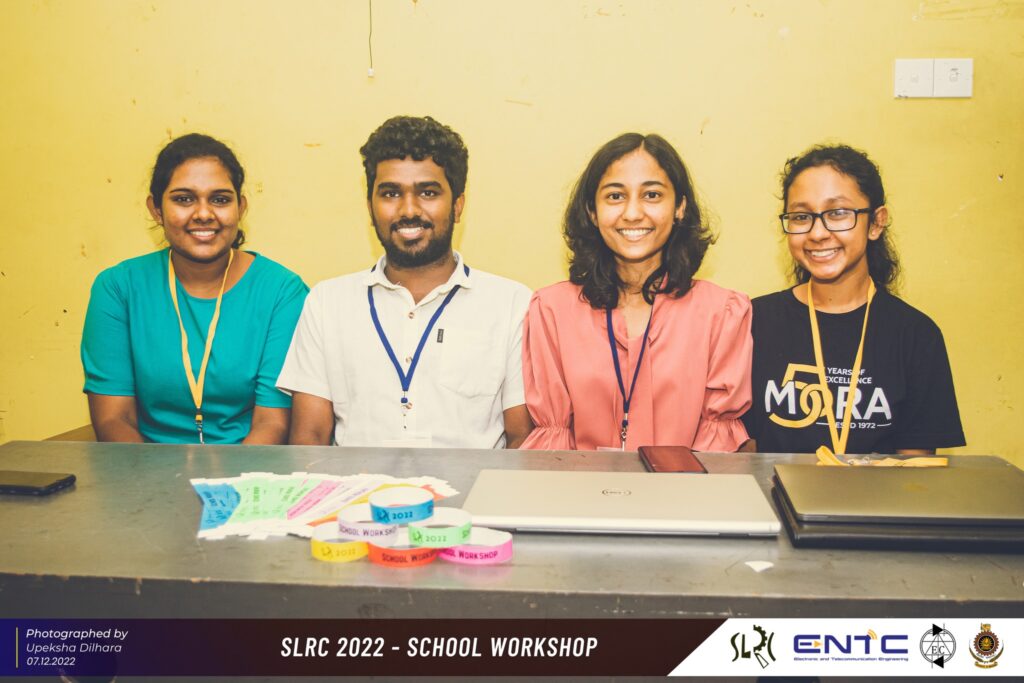
The final workshop was attended by parents, teachers, and students from various schools who had participated in the training program. The attendees were given the opportunity to witness the robots designed by the students in action. The workshop was followed by a closing ceremony attended by faculty members, who awarded certificates to the participants who had successfully completed the workshop.
Dr. Chamira Edussooriya, a faculty member who mentored a team from a school, spoke about the transformative experience that the training program had been for the students. He highlighted the importance of such programs in nurturing the talent of young minds and preparing them for the challenges of the future.
The SLRC Grand Finals are scheduled to take place in March 2023, and the participants are already looking forward to showcasing their skills on the big stage. The competition promises to be a platform for students to showcase their creativity, problem-solving skills, and teamwork abilities.
The SLRC has been a great initiative in promoting robotics education in Sri Lanka, and the University of Moratuwa is proud to continue to organize such events. The success of the SLRC training program is a testament to the growing interest in robotics among school students in Sri Lanka.
Read MoreSemester 2 Engineering Design Project Demonstrations
The Engineering Design Project module is a creative and enjoyable module offered by the Department of Electronics and Telecommunication Engineering at the University of Moratuwa. The new curricular—both electronic and telecommunication engineering and biomedical engineering—feature this new compulsory course module called Engineering Design Project in semester 2. The aim of this module is to provide a holistic view of the processes leading to design and manufacturing in electronic, telecommunication and biomedical engineering. The module trains the students on the use modularity and abstraction in solving engineering problems, applying basic engineering design principles, using design tools for electronic product prototyping, identifying various manufacturing processes involved in electronic product manufacture, designing a product prototype to comply with given technical specifications, and analyzing the performance and manufacturability of the developed prototype. This is the very start of the journey of engineering product design and manufacturing.
In this module four members were formed into teams and each team had to come up with a marketable electronic-related product that gives a solution to a prevailing problem in the society, they have to do marketing, PCB design, coding, enclosure design and all the stuff related to product manufacturing. There are a total of 30 groups (26 electronic and telecom groups and 4 biomedical groups) each focused on a specific field. This is a small description of selected products from those 30 products.


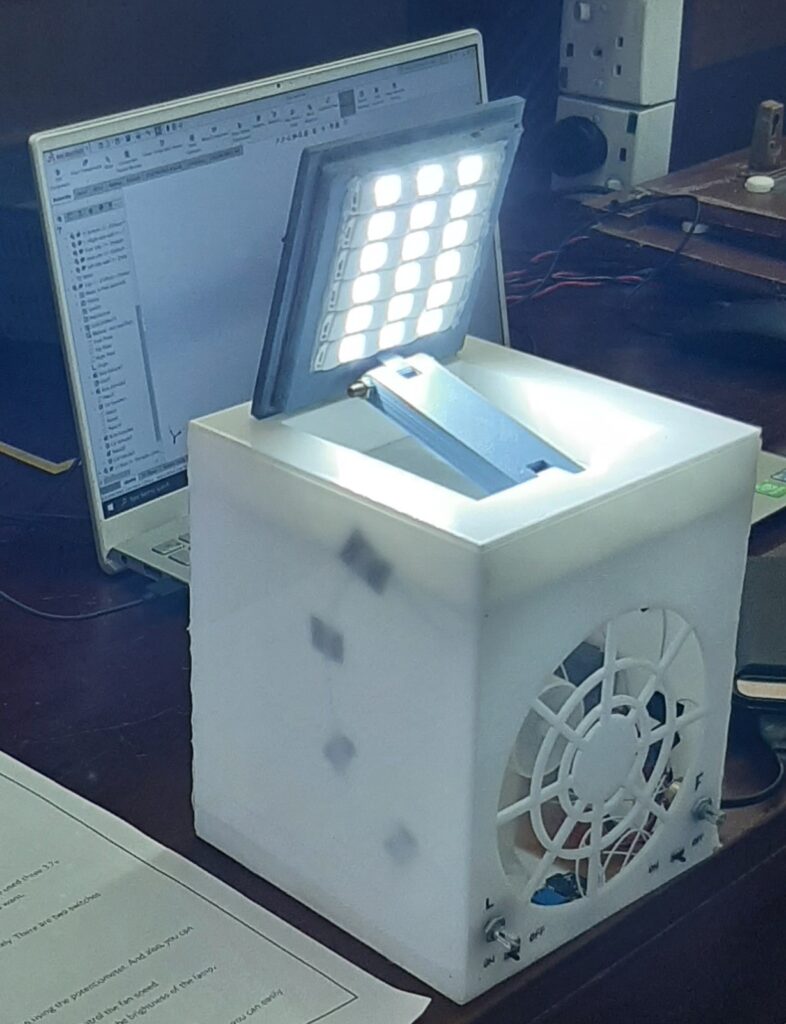
There was also a device that can indicate the remaining gas level of a LP gas cylinder. It is designed to help people monitor and manage their gas usage more efficiently. It will continuously measure and calculate the remaining gas percentage and display it on the mobile app, along with other analytics about gas usage. There were many more other exciting and innovative products that have design and created by ENTC undergraduates. Congratulate to all the teams who complete there project successfully.
Read MoreSix ENTC Graduates Join Harvard as Post Baccalaureate Research Fellows to Work on Computational Imaging and Computational Biology
Six students in the graduating class Jathurshan Pradeepkumar, Kithmini Herath, Mithunjha Anandakumar, Ramith Hettiarachchi, Udith Haputhanthri, and Hasindu Kariyawasam, joined Faculty of Arts and Sciences at Harvard University as Post Baccalaureate Research Fellows to Work on Computational Imaging and Computational Biology.
Under the computational imaging areas, they will be particularly working on a new microscopy design framework named, differentiable microscopy which is a new concept introduced by the Harvard laboratory, Wadduwage lab. Under computational biology, they will be working on problems related to protein folding and protein design with SoLab.
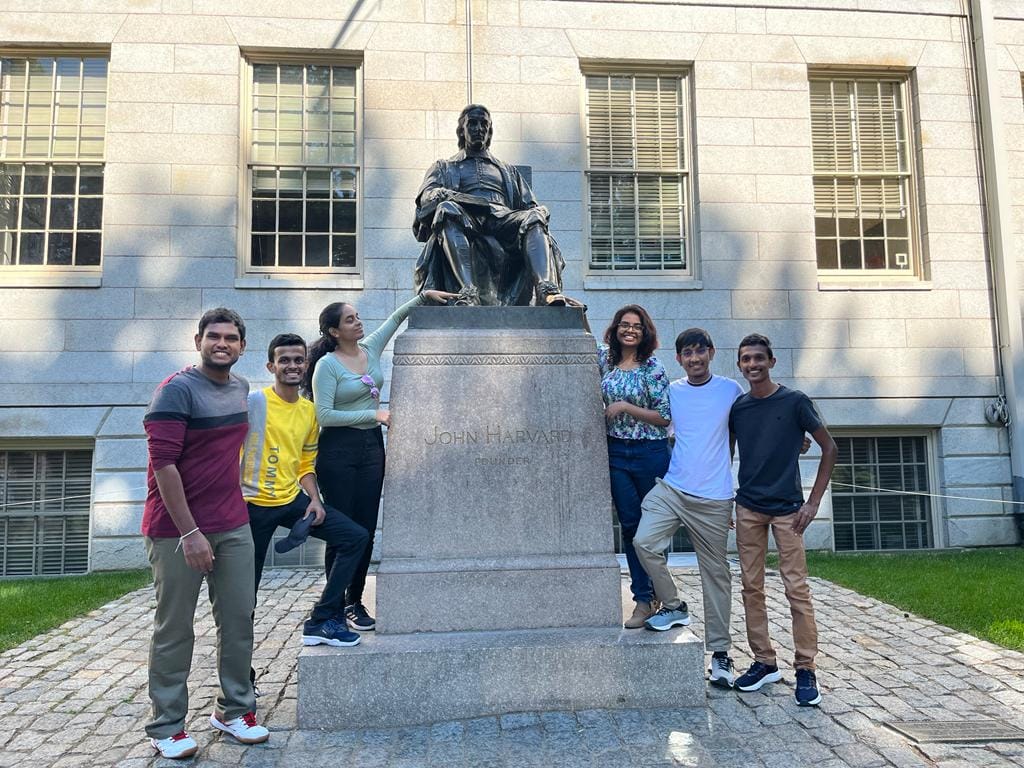
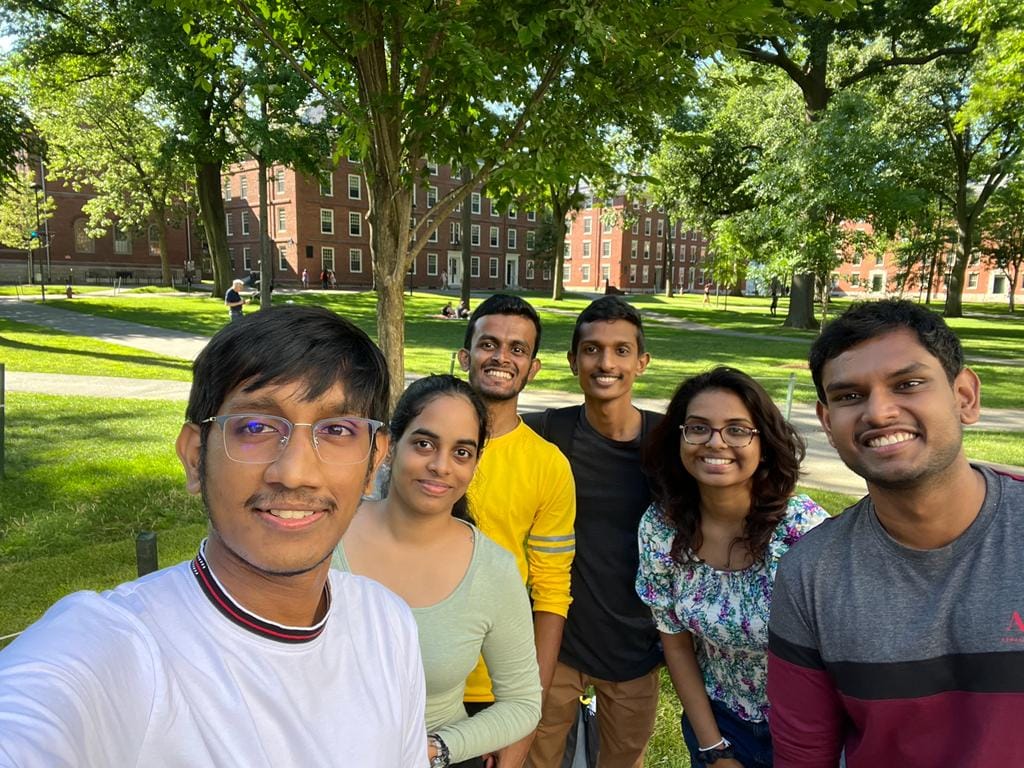
SPARK Award Ceremony and Launch
At the SPARK award ceremony and launch the three top teams that proposed engineering solutions to problems that affect the society addressing the Sustainable Development Goals (https://sdgs.un.org/goals) won awards and cash prizes. This was after a year-long process of ideation and prototype development by many teams. Ten teams reached the final pitching round held on July 24, 2022. An eminent panel of judges comprising Mr. Fayaz Hudah, Mr. Chalinda Abeykon and Mr. Josh Robsen made the selection of winners.
Supun Kuruppu, Chirantha Kurukulasooriya, Dumindu Bandara, and Biyon Fernando as Team Phantom won the grand prize, a trophy and a cash prize of Rs 600,000. As the coral population throughout the world is rapidly declining due to the prevailing climate crisis and toxic human activities, Team Phantom proposed to collect the coral gametes using a robot to subsequently provide proper conditions for growth. The proposed robot automates the current process which the scientists have to undergo diving and collecting the gametes by themselves.
First runners up, Team Axon, comprised Nuwan Bandara, Sahan Hettiarachchi, Kulunu Dayasekara, Dasun Premathilake. They proposed a system to monitor the depth of anesthesia to tailor the drug administration to the individual patient, thus preventing excessive anesthetic depth and improves patients’ outcome. Second runners up, Team Fix-It, comprising Sahan Viduranga, Isuru Munasinghe, Yomali Lokugama, and Vishawa Oshadha introduced a system that continuously checks the pollutant levels of water in rivers and reservoirs. The two teams won Rs 300,000 and Rs 100,000 respectively.
Following the award ceremony, the SAPRK project launched the 2022-2023 challenge that includes the students of the Intake 2020. The event took place on July 30, 2022, at the Civil Engineering Auditorium. Mr. Heminda Jayaweera delivered the keynote address. The award ceremony and launch were educational, and exiting for all the participants.
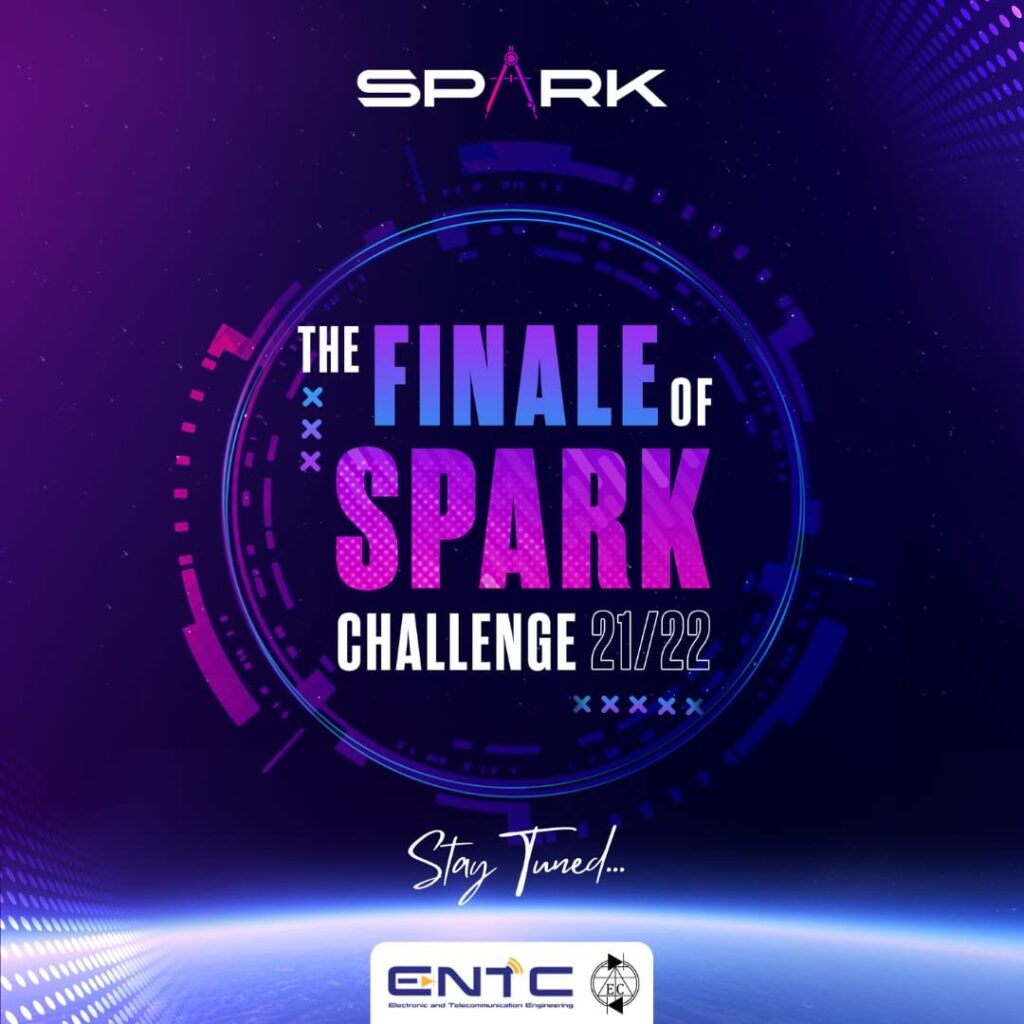
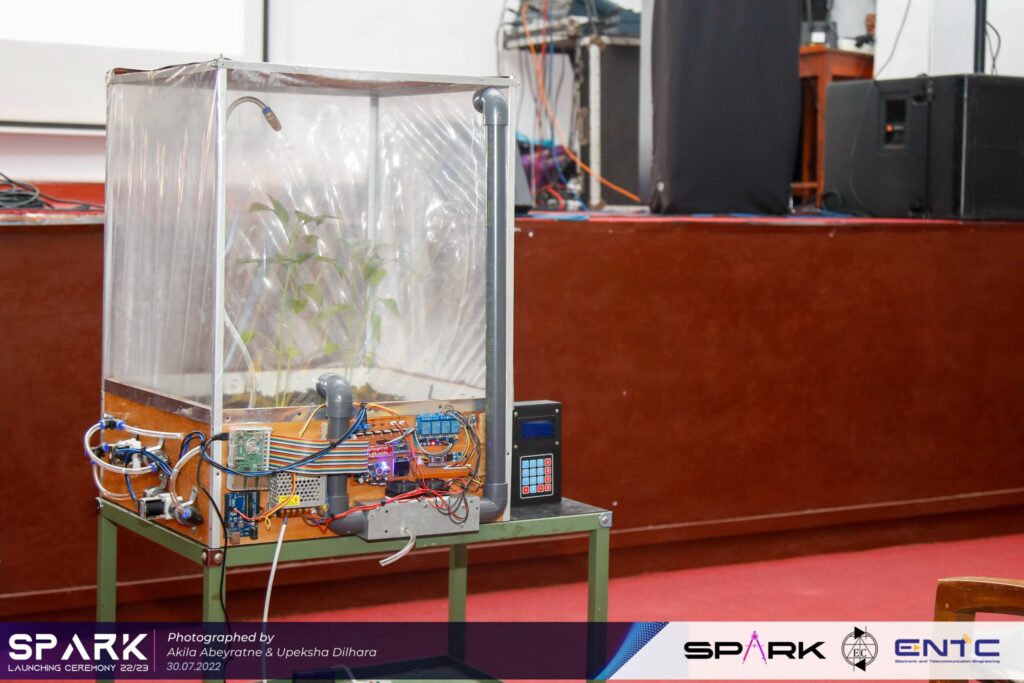
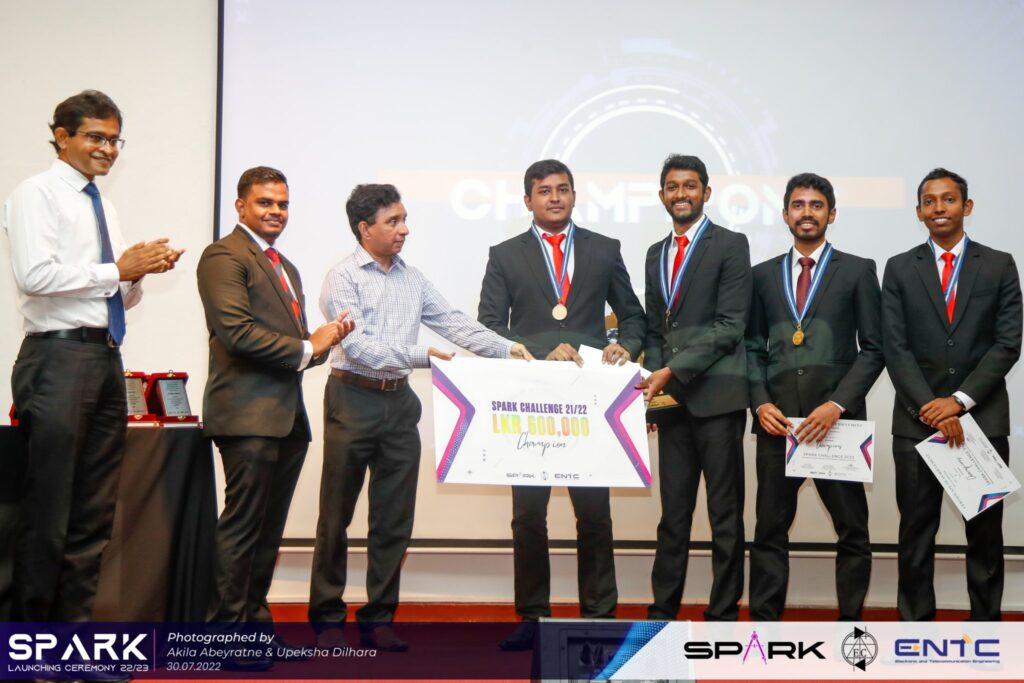
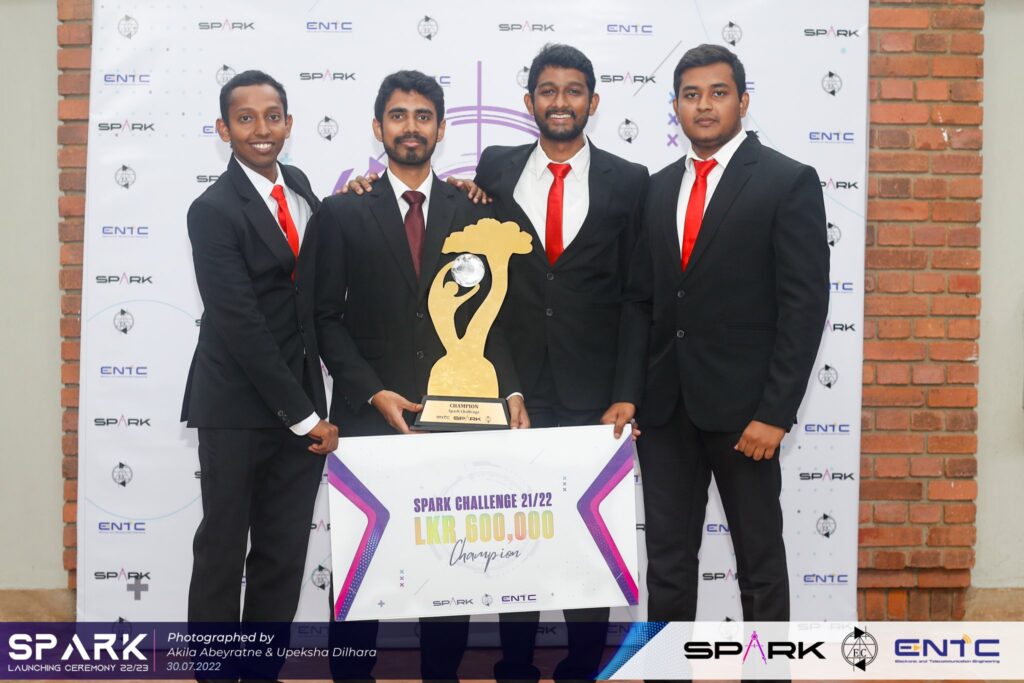
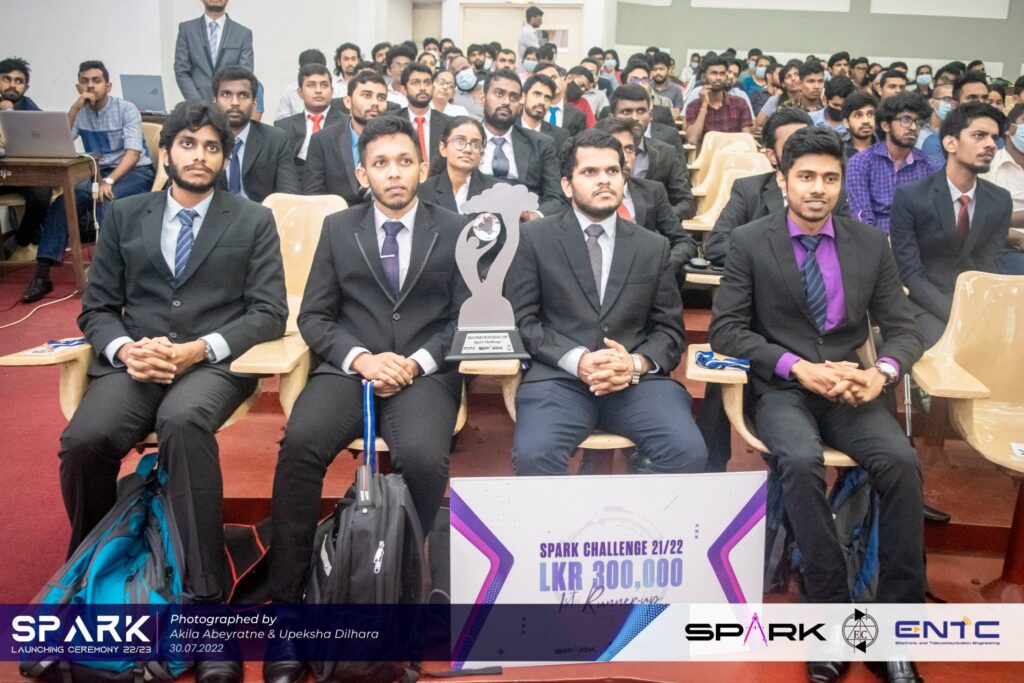
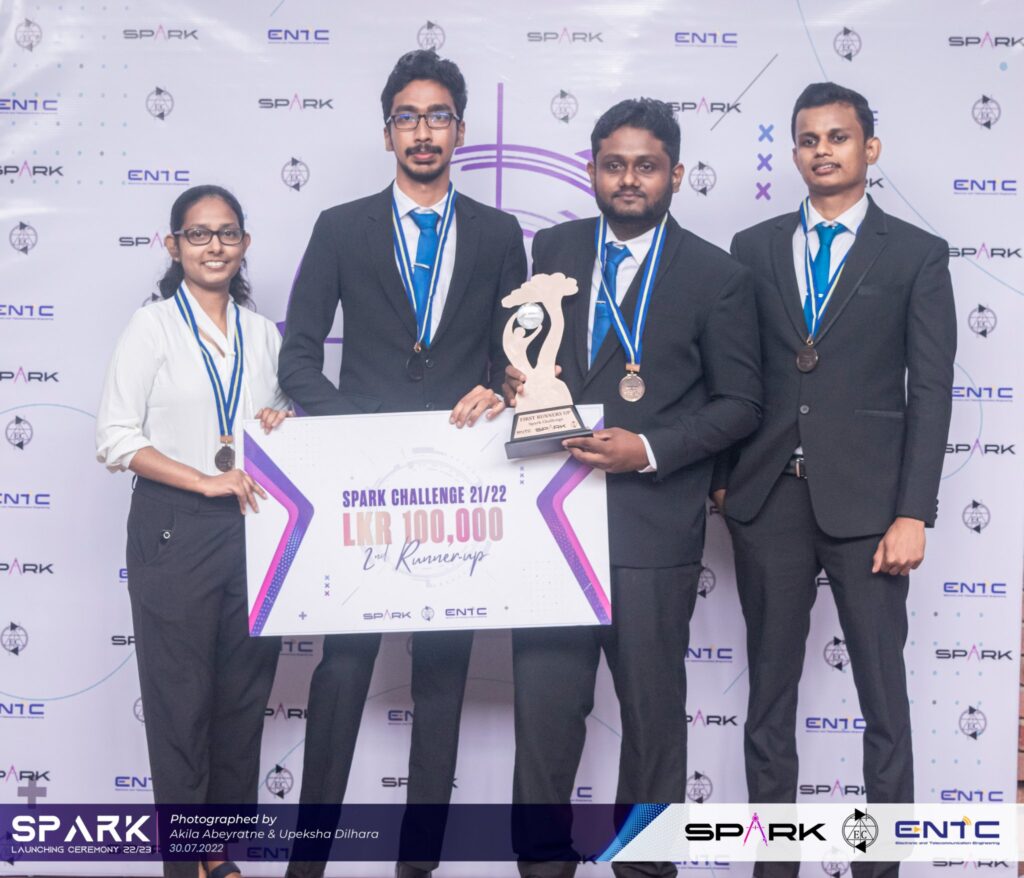
SPARK Pitching Sessions
SPARK project aims to drive projects that solve crucial problems that mankind faces such as climate change, food scarcity, and inequality in education though the application of engineering principles. All these are important aspects of the 17 Sustainable Development Goals (https://sdgs.un.org/goals). Approximately 35 student teams worked on developing solutions to problems that address one or more such goals. Ten groups were able to propose fully-developed ideas and make prototypes. This was possible after a long-term training provided by SAPRK with the involvement of foreign trainers.
As the culmination of this year-long process, the ten groups pitched their projects to an eminent panel of judges comprising Mr. Heminda Jayaweera, Mr. Fayaz Hudah, Mr. Chalinda Abeykon and Mr. Josh Robsen. This pitching session took place on July 24, 2022 at the Department of Electronic and Telecommunication Engineering in a vibrant setting with many students and staff members watching and deliberating about the possible impact of the projects.
Read MoreMigara Ratnatunga Trust Award for Industrial Training for Undergraduates 2020/2021
Kalana Abeywardena, an immediate graduate of Department of Electronic and Telecommunication Engineering, University of Moratuwa, won the Migara Ratnatunga Trust Award (All island 1st place – Category A) for the year 2020/2021 which was awarded by the Institution of Engineers, Sri Lanka (IESL) for the best Electronic and Telecommunication Engineering trainee who portrayed excellent performance at Industrial Training. The award (a cash prize and certificate) was presented at the IESL induction and graduation ceremony on Friday, June 17, 2022.
Kalana completed his 6 months industrial training at the School of Computer Science of the University of Sydney, Australia as a Visiting Research Student under the supervision of Dr. Suranga Seneviratne in 2019. During the training, he was mainly engaged in two projects: he developed a cyber security framework to address phishing attacks on websites using computer vision and artificial intelligence and worked on depth filters and artificial intelligence to process Light Field signals to improve their signal power. Moreover, he worked as an undergraduate assistant in a summer program organized by the University of Sydney for international students from China.
Migara Ratnatunga Trust Award is awarded to the high achievers of level 3 industrial training module at the Annual sessions of IESL. The results of the evaluations done by the university training division will be submitted to the IESL, where a few undergraduates would be recognized as high achievers in the compulsory industrial training module in the engineering undergraduate program after a rigorous evaluation among the undergraduates of other state universities.
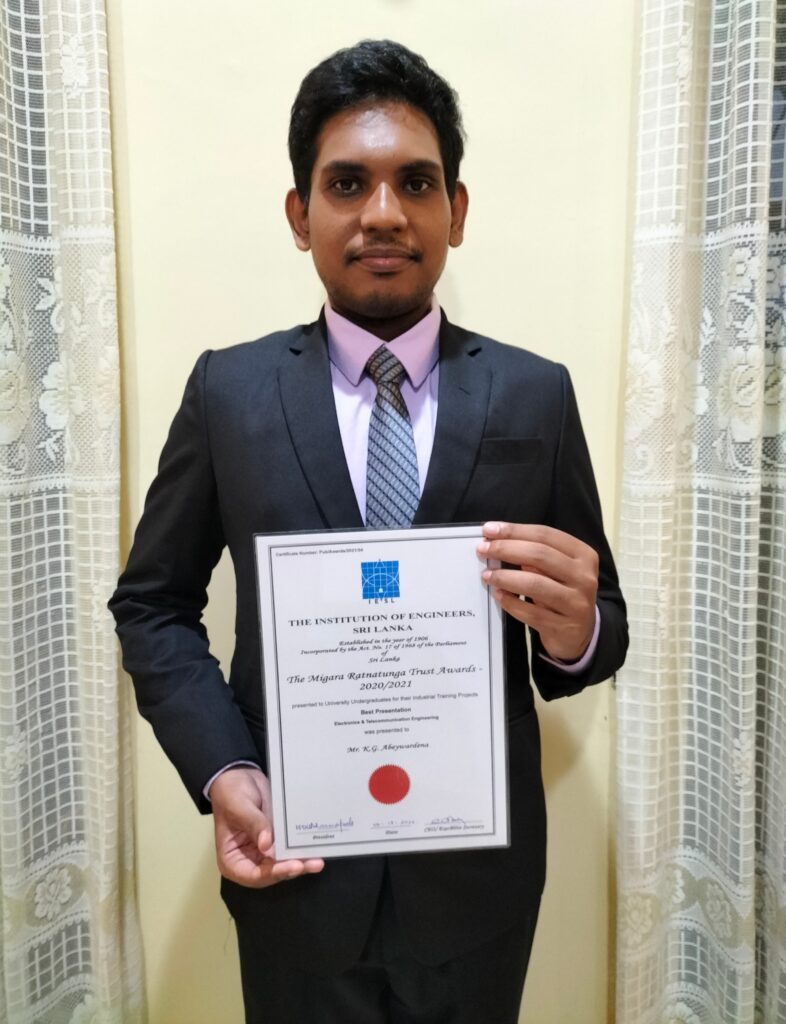
Team University of Moratuwa Selected as Finalists in the IEEE International Future Energy Challenge 2022
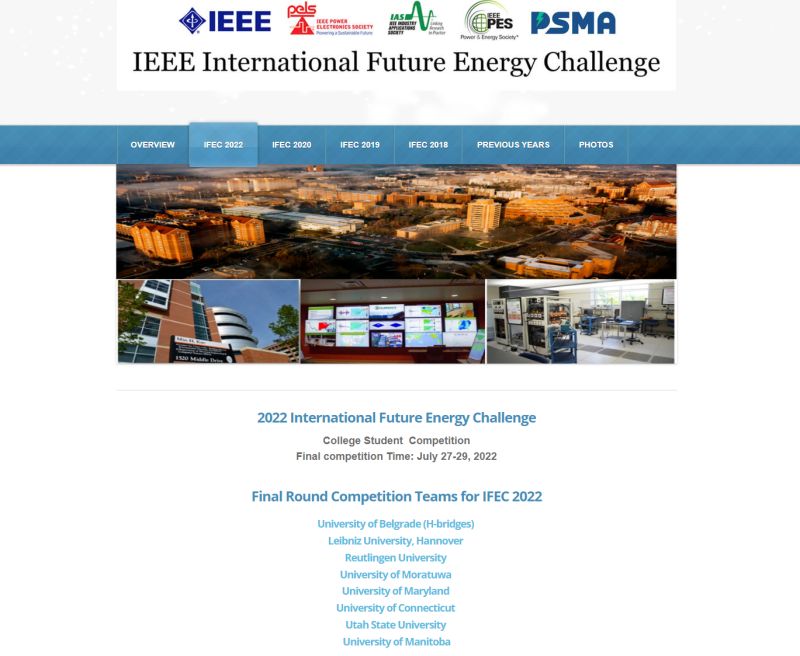
A team of undergraduates from the Dept. of Electronic and Telecommunication Engineering and Dept. of Electrical Engineering at the University of Moratuwa has been selected for the Grand Finals of the IEEE International Future Energy Challenge 2022 for the first time in Sri Lanka. This is a prestigious power electronics competition organized by the Institute of Electrical and Electronics Engineers (IEEE) and sponsored by the IEEE Power Electronics Society, IEEE Industry Application Society, IEEE Power and Energy Society and Power Source Manufacturers’ Association.
The team advisors:
Prof. Udayanga Hemapala – Head Department of Electrical Engineering
Dr. Subdoha Charles – Senior Lecturer at the Department of Electronic and Telecommunication Engineering
Mr. Thilina Ambagahawaththa – Lecturer at the Department of Electronic and Telecommunication Engineering
Mr. Iresh Jayawardana – Graduate of the Department of Electronic and Telecommunication Engineering
The team members from the Department of Electronic and Telecommunication Engineering:
Pahan Mendis – Team Leader
Pamuditha Somarathne
Punsara Mahawela
Ransara Wijitharathna
Dineth Mudalige
Chathuni Wijegunawardana
Hiruni Wijewardena
Nikeshi Kumarasinghe
Limalka Sadith
Supun Kuruppu
Biyon Fernando
The team members from the Department of Electrical Engineering:
Nawanjana Yesith
Geshan Sudasinghe
For this competition, the team designed a smart efficient and light microgrid inverter that converts DC power from a solar panel into AC. Since 2010, solar costs have declined 70% to 80% in the world, making solar one of the most economical ways for energy generation. However, integrating renewable and distributed energy resources, such as photovoltaics (PV) and energy storage devices, into the electrical applications requires advanced power electronics, or smart inverters, that provide efficient and reliable power management. The team target to achieve an efficiency greater than 95% and a bulk manufacturing cost less than $200 in their inverter.
The team progressed through the initial selection round where they submitted their proposal for the inverter that caters the set of given specifications. During the semi-final round, 13 teams from prestigious universities in the world demonstrated their hardware design of the proposed inverter. Our team from University of Moratuwa, along with 7 other teams from Europe, Canada, and America, have been selected for the grand finals based on the technical quality of the design and the progress of hardware implementation demonstrated in the semi-final round. The final competition will be held between 27th-29th of July 2022 at University of Tennessee, Knoxville, USA.
The complete hardware prototype of the inverter will be tested for its performance in front of judges and industry experts at the grand finals. A group of students representing the Team UoM is planning to visit the USA with the designed inverter for this final competition.
Read MoreStep into ENTC
A session termed “Step into ENTC” was held on March 7, 2022, to educate the prospective students on the career opportunities and higher studies. The panel of lecturers, alumni, and final-year undergraduates conducted the session.
Mr. Mohamed Afham an alumnus now with Meta, NY, discussed about the path and opportunities in machine vision and machine learning. Mr. Deepana Ishtaweera with his background on robotics, robotic education, and start-ups talked about robotics. Mr. Jathurshan Pradeepkumar, a biomedical engineering alumnus now with Harvard, shed light on opportunities in biomedical engineering. Mr. Kalana De Silva, an alumnus attached to a large-scale telecommunication organization in Singapore, spoke about processor design. Dr. Subodha Charles, a staff member with expertise in cybersecurity and embedded systems, spoke about internet of things.
The panel showed a multitude of avenues to take in becoming an engineering scientist. The session turned out to be much informative to the participants.
